Essential Guides
Ocean Mapping
New to Yachting

Yacht Captain jobs
Your new adventure awaits.

Photo of Captain Sally-Ann Konigkramer
Explore more yacht roles
Other essential guides.

Mandatory certificates

What you need to know about B1/B2 visa

Download yacht crew CV templates

How to write a memorable yachting CV

How to prepare for a yacht interview?

What are the two main yachting seasons?

Big yacht crew hubs you should know about

Is yachting the right choice for me?

Yacht crew salary guide
Leading from the helm as a Captain is undoubtedly one of the most fulfilling and rewarding career paths in the superyacht industry.
The Captain holds the most senior position onboard a yacht and the one responsible for the overall operation of the yacht, the safety of its crew, owners and guests. It’s an all-encompassing position where excellent navigational capabilities are coupled with a high level of administrative and managerial skills.
The role differs depending on the size of the yacht, its usage and its cruising itinerary. Captains on smaller yachts need to be hands-on problem solvers and multitaskers. Under 35m, for example, the Captain’s position also encompasses the role of an Engineer, whilst on larger yachts the Captain has dedicated teams and Heads of Departments under their command.
What does a yacht Captain do? | Yacht Captain Job Description
Commanding the yacht and navigating safe passages across the oceans is just a small part of a Captain’s job. A yacht Captain is also in control of overall safety, crew management, budgeting, administration, refit projects, voyage planning and adhering to all international maritime regulations (ISM, MARPOL, SOLAS).
The responsibilities of a yacht Captain include:
Safe navigation and operation of the yacht
Ensuring that the yacht is in all respects compliant with the relevant laws and regulations
Ensuring that the yacht is prepared for annual flag surveys, annual class surveys and port/flag state controls
The setting of budgets and budget management
Hiring, leading, appraising and dismissal of crew
Overseeing the maintenance of the vessel
Ensuring legal and regulatory compliance
Managing yacht refits and surveys
Managing fuel costs and dockage fees
Being an ambassador for the yacht, hosting and entertaining guests as required
Voyage planning
Soft and hard skills required to be a yacht Captain
Successful Captains are excellent leaders, able to set a common goal for their crew and able to communicate with owners, guests, crew, contractors and brokers alike.
The skills of a successful yacht Captain include:
Excellent leadership, management and diplomacy skills
Excellent yacht handling and navigation
Ability to stay calm in difficult situations
Good grasp of finance and legislation
Excellent communication and interpersonal skills
Organisation and administration skills
How to become a yacht Captain?
Maritime training and sea-going experience is required. Positions are qualification based, from a Master 200, Master 500, Master 3000 and up to a Captain Unlimited. Training may be completed in a National Maritime Academy, a university or a specialised Sailing School.
Mandatory certificates needed to work on board a yacht
All crew members regardless of position and seniority need to have a valid STCW Basic Safety Training certificate, along with a recognised Seafarers medical certificate, the most popular being the ENG1 which is issued by an MCA (Maritime and Coastguard Agency) professional medic.
Without these two certificates, it is not possible for crew to work on board a yacht and a Recruiter will not be able to assist you in finding work onboard a yacht. For more information about mandatory certificates please visit our Mandatory Certificates Guide .
Are you ready to secure a Captain position on board a yacht?
Become a member of YPI CREW and connect with our recruiters so they can guide you through your job search.
Each of our recruiters is specialised in crew placement for a particular department and they will do their best to get you an interview on board a yacht. They will also advise you on how to best present your experience and skills and prepare for a yacht job interview.
YPI CREW TEAM
Ypi crew recruiters in charge of captain recruitment.

Ulrica Lindström
Head of Captain and Officer Department

Captain and Officer Recruitment Specialist

Caitlin Sorrell
Let’s get started. call us on +33 (0)4 92 90 46 10 or email us., our mission, vision and values, mlc 2006 compliance, essential guides, yacht crew positions.
Chief Officer
Second Officer
Third Officer
Chief Engineer
Interior Crew
Head of Service
Head of Housekeeping
Specialist Positions
Spa Manager
Spa Therapist
Personal Trainer & Yoga Instructor
Hairdresser
Mandatory Certificates
B1/b2 visa information, how to write a memorable cv, how to prepare for an interview, yachting seasons, yacht crew salary guide, is yachting the right choice for me, cv templates, ocean mapping, new to yachting.
+33 (0)4 92 90 46 10
Be a superyacht Captain
So you want to become a superyacht captain.
The Captain of any yacht has one primary duty; the safe manning and operation of the yacht. This includes taking full responsibility for the crew, tenders, toy and all the guests onboard.
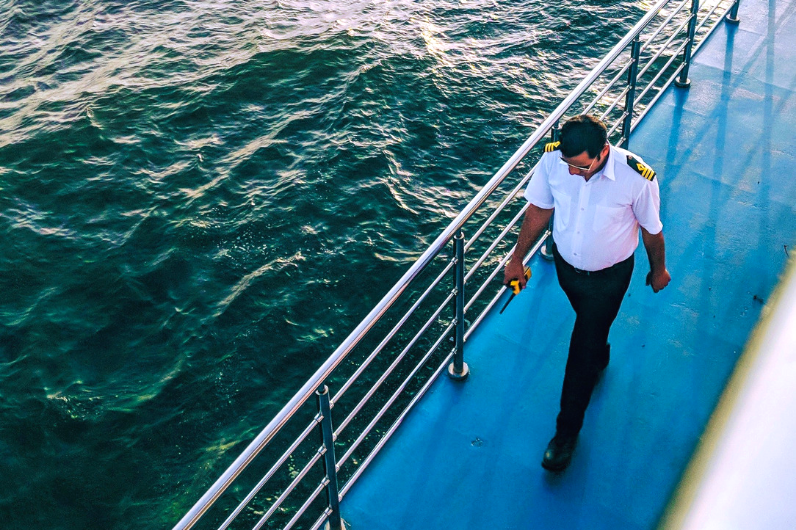
Job Role of a Superyacht Captain
As a rule, the smaller the yacht, the more hands-on the Captain must be. The larger the yacht, the more administrative duties the Captain will hold. A superyacht Captain specialises in commanding and managing luxury yachts over 24 metres in length.
Every crew member falls under the ultimate command of the Captain and will answer to him/her.
What does a Superyacht Captain do?
As a superyacht Captain, you’ll be at the top of your game, responsible not only for the yacht itself, but also for its crew, itinerary and navigating safe passages across the oceans. You’ll be in control of budgeting, administration, refit projects, yard visits, personnel, health and safety, to name but a few.
Personality traits
What personal traits are beneficial for this role.
You will need great communication skills to deal with owners, contractors, crew and guests alike. You will be dedicated to a career at sea and will already have established yourself in the industry having worked your way up the deck officer ladder building a reputation as a first-class professional along the way.
As a Captain, you must be highly skilled at dealing with people, both crew and the owner/guests. Personnel management skills are critical within this role.
Skills required to be a Superyacht Captain
What skills or experience are required.
Captains must have considerable maritime experience and training. A Captain of a superyacht has to have excellent seafaring knowledge, a good grasp of accounting, IT and administration and also deal with authorities on matters such as paperwork and health and safety.
Previous experience of yacht handling is essential and handling a yacht of the same or similar sizes a distinct advantage.
Benefits of being a Superyacht Captain
Your role really will be all-encompassing and you’ll answer to the yacht’s owner about all the decisions you make. A career as a superyacht Captain is demanding but rewarding. You’ll enjoy worldwide travel and earn a fantastic salary of anything from €4,000 per month with no cap on salary!
How to start your pathway to become captain?
More than just a love of the sea and a captain’s hat are needed to start a career as a superyacht captain. This is a career path that requires commitment, training, and practical experience. Enrolling in classes that offer the required maritime qualifications is the initial step. Take the Superyacht Cadetship Course as your first step into this fascinating industry. This extensive programme gets you ready for the rigours of the open sea by fusing classroom instruction with real-world sea experience. It is essential to network within the industry, and UKSA offers a helpful community that helps you take advantage of opportunities and pick the brains of industry experts. And never forget that your love of the sea serves as your compass; follow it to become a captain.
Career prospects
Be inspired graduates return to uksa to hire crew and further their training.
“We trust in UKSA because we did our training there and can vouch for its quality. Because the courses are all-inclusive they run back-to-back which really helps with fitting around our schedules. It is the best place from which to hire successful crew because the career courses are similar to a university degree. UKSA students devote time to their training and so are looking to stay with a boat for at least two seasons. This is valuable to us as we take time to invest in our crew and training – with UKSA we also know what to expect.” Officer Daniel Lambert
- MY Icon – 6 generations of UKSA trained crew now all working together
- Dan Snook – Planning to come back to UKSA for his Master 3000gt modules
Register your interest
- First name *
- Last name *
- How did you hear about UKSA? * –None– Campaign Dinghy Show Educational Visits UK Event GroupAccommodation.com Guardian Media IOW College IOW County Press London Boat Show Online PlanMySchoolTrip.co.uk Press Radio Referral School Travel Organiser Social Media Southampton Boat Show Top School Trips UKSchoolTrips.co.uk Visit IOW Yachts & Yachting
- General notes
- Opt-in to receive course information and relevant offers
- Accept Privacy Policy and Terms and Conditions .
- Name This field is for validation purposes and should be left unchanged.
If you have any questions or need to get in touch:
Speak to UKSA on +44 (0)1983 294941 or email us
- Brokerage New Construction How to Buy How to Sell
- Yacht Fleet Yacht Catalog Charter Marketing Destination Guides
- Financial Services Payroll & Accounting Payroll Service Process Logistical Support Admin Services Crew Admin
- Job Descriptions Crew FAQ
- About Sitemap
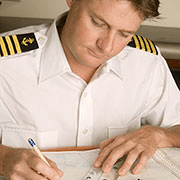
- Yacht Department Directory
- Deck Department
About the Captain
The captain onboard a yacht has a record of longevity, excellent owner references and strong crew management skills. This individual should possess working knowledge of yacht management and safety in addition to financial administration. The captain will excel in planning and communicating various itineraries to the owners and guests onboard in various cruising areas. All their certifications and licenses are fully up-to-date and they are familiar with the latest requirements/newest technologies. This role usually requires at least five years of experience on yachts.
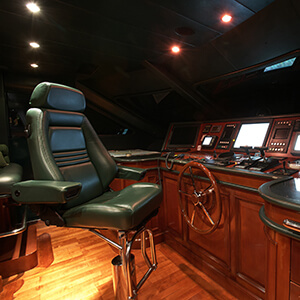
Job Responsibilities
- Ultimate safety for passengers, crew, environment and vessel
- Achieving owner's objectives
- Crew hiring and dismissal
- Personnel management
- Shipyard/project management
- Legal and regulatory compliance
Required Skills
- Calm and charismatic personality
- Superior leadership, communication, management and diplomacy skills
- Excellent boat handling and navigational skills
- Excellent ISM and ISPS knowledge and practices
- Excellent maintenance, engineering and technical / troubleshooting experience
- Ability to remain calm and give directions in an emergency situation
- Organized and methodical
- Financial management
Salary Modifiers
- Speaks multiple languages fluently
- New build experience
- Project Management certification or Management degree
- Limited experience in intended cruising area
- Lack of experience on a similar size vessel
Position Statistics
Career path, senior master, junior captain, first officer / chief mate, officer of the watch, junior deckhand.

- Charter & Brokerage
- Yacht Design & New Builds
- Tenders & Toys
- Superyacht Events Calendar
- Career & Training
- Departments
- Superyacht Crew Finances
- Sustainability
- Shipyards and Marinas
- Health & Wellbeing
- Polar Region
- Our Services
- Meet the Team
How To Become A Superyacht Captain With UKSA
.png)
Have you ever wondered what it takes to become a Superyacht Captain? To do so, it requires a combination of education, experience, and certifications across numerous years. In this article, we hear from Will Satterly, Head of Careers at UKSA , about how to become a Superyacht Captain.

Which Tasks Does A Superyacht Captain Carry Out?
As Captain, specialising in commanding and managing luxury yachts over 24 metres in length, you’ll be responsible for a crew and the safety of passengers. As well as this, you answer to the yacht’s owner about the decisions you make. Effective communication and leadership are crucial. Will elaborates:
“The Captain is responsible for the safety of the vessel and crew/passengers. Building an effective culture and maintaining the highest standards of professionalism and safety whist complying to all regulatory requirements. Managing expectations of owners and other stakeholders such as management companies, is another key part of being a successful captain.”
The smaller the yacht, the more hands-on the Captain must be. Yet they will have hold more administrative duties if the yacht is larger.
How Long Does It Take?
Naturally, depending on the candidate, this will vary. However, Will remarks that “6+ years is realistic to gain the necessary experience, sea time, and modules.”
The Qualifications & Traits You Need
As Captain, you will need:
- Great communication skills (to deal with owners, contractors, crew, and guests alike)
- Personnel management skills
- Excellent seafaring knowledge
- An understanding of accounting
- IT and administration skills
The UKSA pathway for MCA Deck Office certification outlines a series of steps you can take:
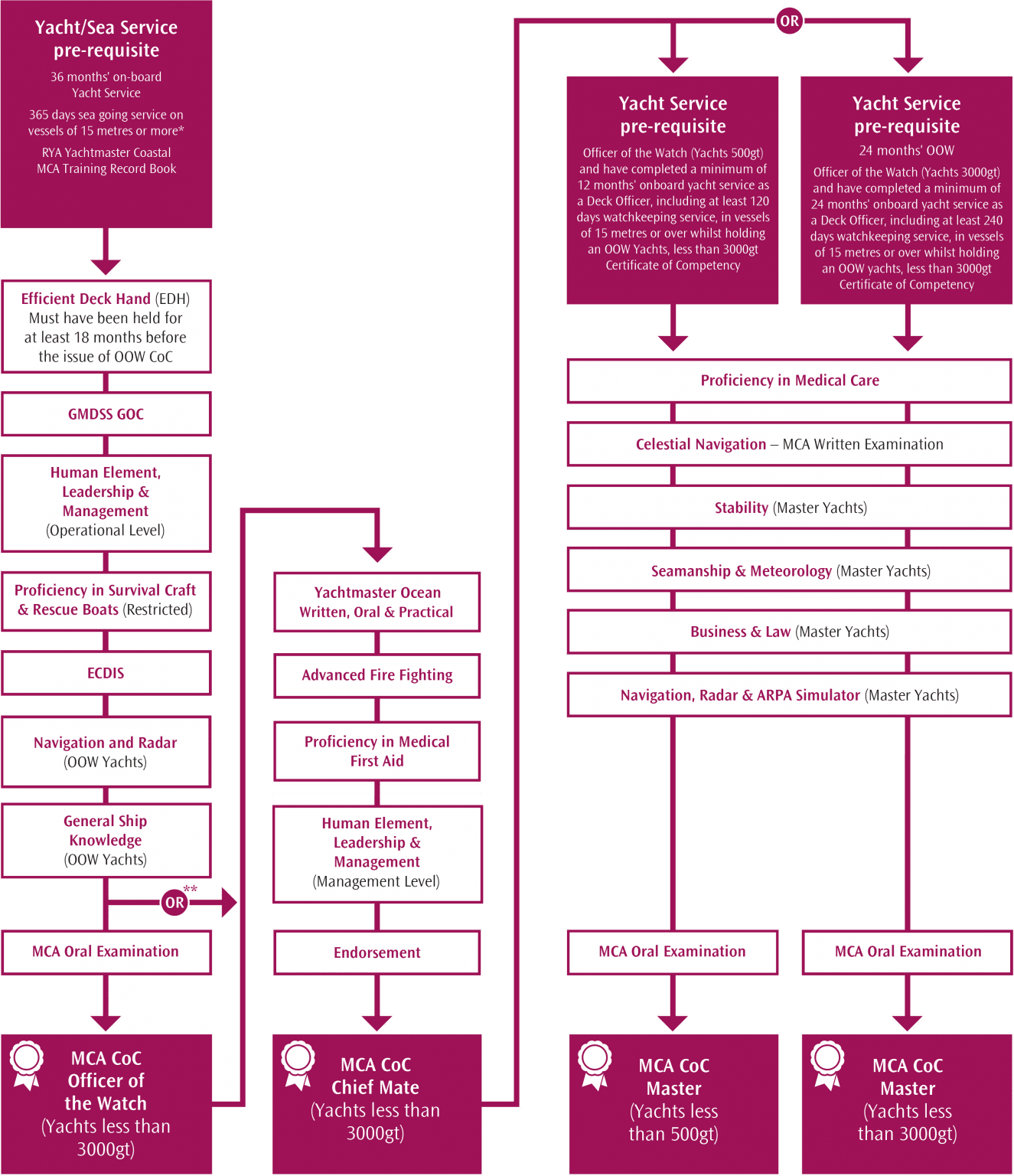
To keep up to date with the latest Superyacht Content News, click here .
Sign up to our Newsletter below:
Newsletter Signup
- Your Name First Last
- Your Email *

Maisie Granger
Related articles, the maritime training academy will see you at the monaco yacht show 2024, lithium-ion battery safety on superyachts & the urgent need for industry awareness, life after yachting: sarah diggle-whitlock from seas the day, top tips & tricks for yacht stews & stewardesses.

Popular Posts
- Tender Of The Week: Two Flagship Ski Boat Models. A Double Treat!
- Superyacht Sustainability: The Common Myths
- AcqueraPro Officially Launch Desktop Platform
- PIBS Exclusive Networking Event ‘SUNSET SOCIAL’ By Superyacht Content & Oceanform
- The Big CrewFO ‘Rolex Giveaway’: here’s how to enter.
Superyacht Content
Social media influencer and digital brand expert.
Superyacht Content brings you the latest in social news for the superyacht industry.
Keep up to date with us across our social channels, and don’t forget to hit that share button!
- Superyacht News
- Superyacht Jobs
- Superyacht Marketing
Join our Newsletter
Copyright © 2023 Superyacht Content | Website Design by Zonkey
Privacy | Credits | Get in Touch

How to Become a Yacht Captain- An Expert’s Handbook
Do you want to become a yacht captain? Having watched my husband climb the ranks over the past 12 years, I have first-hand experience of seeing what it takes to become a yacht captain.
We started working on a small catamaran in the Seychelles, and today, he is the successful Captain of a world-traveling 50m super yacht.
Becoming a yacht Captain requires a significant investment of time and money, but the reward of commanding your own vessel and crew is immeasurable.
Let’s explore what it takes, including the salaries, necessary skills, and certifications.
Table of Contents
Job Description of a Yacht Captain
The Captain of a superyacht is responsible for the safe navigation of the vessel, the safety of the crew onboard, as well as protecting the environment.
They are the primary source of communication with the yacht owner, guests, and management company.
They also handle all the daily operations of the yacht, including crew management and safety training. The Captain deals directly with management companies, port control, maritime legislation, budgets, accounting, and human resources.

Yacht Captain Salary
The below super yacht Captain salary guideline is based on my personal research using an average of over 10 major yachting platforms:
- 20m-30m: $4000-$7500 p/m
- 30m-40m: $5500-$9500 p/m
- 40m-50m: $8000-$15000 p/m
- 50m-70m: $13000-$19000 p/m
- 70m+: $16500+ p/m
Additionally, with longevity a yacht Captain can also expect to see discretionary annual raises and bonuses.
If they work on a Charter Yacht there will also be charter tips received averaging $2500-$5000 per week of chartering.

Roles and Responsibilities of a Yacht Captain
The job of a Yacht Captain can be compared to that of a CEO, CFO, and COO of a large corporation. The responsibilities are huge.
On a smaller vessel of 35m or less, the captain will need to be more hands-on, and they will likely also be the engineer of the vessel.
However, as the vessel size increases, you will have larger teams and heads of departments to assist in delegating tasks.
Roles and Responsibilities
- Crew Management and training
- Hiring and dismissals of crew
- Human resources
- Accounting and budgeting
- Safe navigation of the vessel
- Safe navigational planning
- Marine and environmental protection
- Vessel maintenance – planning yard work and refits
- Owner and guest liaison
- Planning of guest trips and itineraries
- Ensuring the yacht is compliant with maritime law
- Ensuring the yacht is compliant with all flag state safety regulations
Soft and Hard Skills
When it comes to the question of how to become a yacht captain, besides the required licenses, it is essential to hold certain soft and hard skills:
- Strong leadership skills
- Team management
- A quick thinker and problem solver
- Calm under pressure
- Exceptional communication skills
- Diplomatic in decision-making
- Excellent boat handling skills
- Navigational skills
- Administrative skills
- Organizational skills
- Computer literate
- Strong understanding of maritime legislation

Mandatory Certifications for How to Become Yacht Captain
The license required when identifying how to become a Yacht Captain is dependent on the size/tonnage of the vessel they wish to drive.
Your entry-level Captain license is the Yacht-Master 200 ton. This allows you to drive a vessel of under 200 tons, which is approximately 35m/100ft.
From there, with enough sea time and experience, you can move up towards the Master 500 and then Master 3000 tickets.
If you were to start from scratch, you would first want to look at how to become a deckhand . This will give you all the information and guidance you require before you get to the point when you are ready to start your master’s licenses.
Here is the order in which you would complete your courses:
- ENG1 Medical
- Efficient Deckhand (EDH)
- Yacht-Master Offshore (200ton)
- Yacht-Master Ocean (200 ton)
- OOW (Officer of the Watch)
- Chief Mate 3000
- Master 500 ton
- Master 3000 ton
Yacht Master Offshore 200 ton Limited
Holders of this certificate can Captain a yacht up to 200 gross tons and must be within 150 nm from a safe haven whilst doing so. This course is also required to legally stand watch on a vessel of up to 500gt.
The course consists of theory and practical work and takes 13 days to complete.
Pre-requisites for Yacht Master 200t Limited:
- 3,000 nautical miles while cruising at sea
- 50 days at sea as an active crew member
- 5 days as skipper on vessels less than 24m LOA
- 48 hours on watch at night underway as an active member of a yacht’s crew. During at least six hours of this nighttime experience, the candidate must have acted as the vessel’s captain or watch leader.
- A GMDSS-compliant Marine Radio Operator’s Certificate such as the RYA Short Range Certificate or higher
- All qualifying sea time must be within 10 years prior to the exam

Master of Yachts 200 ton Ocean Unlimited
This certificate allows the holder to be in charge of a commercial yacht of up to 200 gross tons on unlimited voyages.
This comprehensive six-day course on celestial navigation is designed to equip future yacht Captains with the knowledge necessary to navigate the globe using a sextant and air navigation tables.
Additionally, it will enable them to plan, undertake, and manage an ocean passage with confidence.
Pre-requisites for the Master 200 ton Unlimited:
- Before enrolling in the course, candidates must have completed two voyages of 250 miles each or one voyage of 500 miles. The majority of the journey must take place out of sight of land, which means being at least 20 miles away from the shoreline.
- For the qualifying voyage, it is expected to create a passage plan that can be reviewed during the course.
Officer of the Watch (OOW)
In order to obtain the MCA Officer of the Watch (Yachts Less Than 3000 GT) Certificate of Competency, candidates must complete seven distinct modules. These modules are designed to prepare candidates for the MCA oral exam.
Pre-requisites for the OOW:
- IYT Master of Yachts Limited certificate
- A minimum of 250 days of actual sea service
- 115 days can be either sea service, stand-by-service or yard service
- A Completed MCA approved training record book
The 7 modules include:
- Navigation and Radar (15 days)
- General Ships Knowledge GSK (5 days)
- Proficiency in Survival Crafts and Rescue Boats/Advanced Sea Survival (3 days)
- Human Elements and Leadership Management HELM (3 days)
- Global Maritime Distress and Safety Systems (GMDSS)
- Efficient Deckhand EDH (5 days)
- Electronic Chart Display and Information ECDIS (5 days)
- MCA OOW Deck Oral Prep Work (12 days)

Chief Mate 3000GT
After obtaining the Officer of the Watch certification for yachts less than 3000gt, you can apply to the MCA for the endorsement of the Chief Mate (Yachts less than 3000gt) Certificate of Competency. It is possible to apply for both certifications at the same time.
Course Modules include:
- STCW Advanced Fire Fighting (4 days)
- Proficiency in Medical First Aid (4 days)
- Human Elements of Leadership Management – Management level (4 days)
Master of Yachts (500GT)
This certificate is required in order to Captain a yacht of up to 500 gross tons.
Requirements for the course:
- 12 months as a watch-keeping officer with an OOW Certificate
- A valid ENG1
Modules include:
- Stability (5 days)
- Business and Law (5 days)
- Navigation and Radar with ARPA Simulator (10 days)
- Seamanship and Meteorology (5 days)
- Celestial Navigation Refresher and Exam (5 days)
- Proficiency for persons in charge of medical care onboard a ship (4 days)
Master of Yachts (3000GT)
This certificate is required in order to Captain a yacht of up to 3000 gross tons.
The modules for the Master 3000GT are the same as that of the Master 500. If you pass all the modules and have met the requirements for the Master 3000GT, you can skip the Master 500gt Course and do the exam and oral for the Master 3000GT.
Requirements include:
- including not less than 240 days watch-keeping service whilst holding an accepted OOW Certificate of Competency (CoC).
- All of this service must be completed in vessels of 15m or over in load line length and include 12 months in vessels of 24 m or over in load line length, or 6 months in vessels of 500gt or more.
- A valid ENG1 Certificate
Final thoughts
Most crew don’t anticipate the significant amount of time and money it takes when wondering how to become a yacht Captain.
My advice to you is to start logging your sea time from the very beginning and plan ahead. You don’t want to miss out on opportunities due to not having the required license.
If you are still looking for more detailed information or if you are looking to book a course, head over to the PYT website. They are an MCA compliant training facility with schools in Fort Lauderdale and South Africa.
Good luck on your journey. I hope to see you out in the big blue ocean commanding your own vessel one day.

Hi, my name is Lisa, a Chief Stewardess in the yachting industry with 10 years of experience, as well as 8 years of hospitality experience prior to that. Being in the yachting industry has been a whirlwind of adventure, growth, challenges and some of the best experiences of my life, and I am excited to share my knowledge and experiences with all of you.

- Career Advice
- Salary Guide
- Digital Dockwalk
How to Get a Job as a Yacht Captain

Kate got her start in the yachting industry working as crew. She spent five years cruising the Bahamas, Caribbean, New England, and Central America, then segued that experience into a career in marine journalism, including stints as editor of Dockwalk and ShowBoats International .
The role of a captain is cut out for those with a deep love of the sea and who don't shy away from responsibility. If you’re an experienced first mate or a bosun itching to take the helm, here’s everything you will need to become a yacht captain...
The most common path to a yacht’s wheelhouse is by rising through the ranks in the yachting industry, starting on deck and building sea time, gaining boat handling and geographical experience, and accruing licenses. But even after the golden ticket is earned — that 500GT or 3,000GT Master license — you’ll find there is more to getting the job than the piece of paper. Most rising crew will get the ticket before they are ready to assume the responsibility. Here is what crew agents and yacht owners have to say about what it takes to be a superyacht captain...
What is a Yacht Captain?
Simply put, a captain runs the vessel, in some ways like a CEO runs a business. He or she shoulders all the responsibility on board and reports directly to the owner or their representative. “The successful captains are all excellent leaders, able to set a common goal for their crew, and ensure motivation despite arduous seasons and long hours,” says Deborah Blazy, who, as general manager of Lighthouse Careers in Valbonne, France (near Antibes), specializes in placing captains. “Important character traits are to remain calm at all times but also to have the right sprinkle of charisma to keep crew morale and standards high.”
What Does a Yacht Captain do?
Driving the boat is just a small part of a captain’s job — many say the easiest part. Captains also hire and manage all other crew on board, plan and execute voyages around the owner’s and charter guests’ expectations, organize repairs and maintenance, control costs, and adhere to all international, flag, and port state regulations — all while providing personable, first-class service, and maintaining the highest levels of safety.
So the role requires a captain to be much more than a navigator; he or she is also part project manager, accountant, mechanic, human resources manager, concierge, and, most of all, chief problem solver. As Blazy puts it, they should have knowledge of the perfect anchorage, but also “have a direct dial to the most prestigious restaurants and be able to book the prime tables last minute.”
On smaller vessels, the captain will pitch in to assist in all roles on board, from changing the oil to washing the dishes. On larger yachts it is much more of an administrative position.
- M/Y Artefact: On Board with Capt. Aaron Clark
What Qualifications Do I Need to Become a Yacht Captain?
The captain must hold a license that is commensurate with the gross tonnage of the vessel and approved by the flag state. In addition, the yacht’s insurance company needs to be comfortable with the candidate’s experience and license and approve the hire. This is understandable when you consider that the underwriter is the biggest financial stakeholder in the vessel — on the hook for the cost of repairs or settlement if the captain makes a mistake.
Here are the licenses you will need to hold to become a yacht captain:
Vessels < 200GT
- RYA Yachtmaster Offshore (with Commercial Endorsement)
- or RYA Ocean Certificate of Competence (with Commercial Endorsement)
- or IYT Master of Yachts < 200T
- or MCA STCW Master (Yachts) < 200GT
- or USCG Operator Uninspected Passenger Vessel License (OUPV/Six-Pack) < 100GT (U.S. Green Card holders can apply)
- or USCG Master Inland/Near Coastal < 100GT (U.S. citizens only)
- or USCG Master 200 Ton Oceans (U.S. citizens only)
Vessels < 500GT
- MCA STCW Master (Yachts) < 500GT Certificate of Competence
- or USCG Master 500 Oceans or Near Coastal (U.S. citizens only)
Vessels < 3000GT
- MCA STCW Master (Yachts) < 3000GT Certificate of Competence
- or MCA Merchant Navy STCW Master < 3000GT
- or USCG Master 1600GT (U.S. citizens only)
- or USCG Master 3000GT (U.S. citizens only)
Vessels > 3000GT
- MCA STCW Master (Unlimited)
- or USCG Master Unlimited Oceans or Near Coastal (U.S. citizens only)
- or Marshall Islands Master of Yachts Unlimited
When it comes to the USCG licensing, Capt. Ted Morley, chief operations officer of Maritime Professional Training (MPT) , notes that it’s “important to make the distinction regarding charter vessels, ocean routes versus coastal, and the number of passengers on board. The waters get murky when you talk about some of the other requirements — such as PSCRB for yachts with lifeboats, DP for vessels that are equipped, ECDIS, ARPA, and a host of other specialty requirements that many Flag and Port states will require of masters on vessels in particular service, areas, or equipment.”
What Experience Do I Need?
“I think a lot of mates with about five years of demanding sea experience and good work habits have the ability to be great captains,” says one owner, who has three large yachts.
The most important experience is time on yachts, as opposed to other types of vessels. “We have very little luck with a captain looking to join a yacht with zero yachting experience,” says Ian Pelham, director of Preferred Crew, a crew agency in Fort Lauderdale.
The yachting industry is quirky and far removed from the predictability of the commercial world. Pelham gives the example of a cruise ship, as he once ran a fleet personnel department for a cruise line: “A captain on a cruise ship has a number of perks, including a cabin steward who cleans the personal space of the captain, there will be mess stewards who will serve and clean up the crew areas for the officers. Generally there is solid rotation — you know exactly when you are to join and when you heading on vacation. When on vacation you do not get calls from the owner asking where you put the ‘good’ whisky when the cousins were aboard. On a yacht, even the big ones, the captain has to be ready to step in at any level, including cleaning up, to make sure the owner has a great time. Most commercial captains just have not had that kind of experience.”
Blazy adds, “[A commercial captain’s] experience is often best suited to the Passenger Code vessels over 3,000GT, where the duties and working conditions in terms of rotation are often similar. There is, however, a huge learning curve in terms of standards and customer expectations.” She recommends these captains gain experience on yachts before assuming the top role. “For the more junior candidates who are happy to start again from the lower ranks on board the yachts there is a big advantage; often they are bringing great transferable skills and relatively high tickets for the deck teams, and so are able to climb the ranks rapidly. Those with the ability to be flexible in terms of outlook and approach will always do well,” she says.
- The Best Superyacht Wheelhouses in the Business
What Do Owners Want?
“Owners are generally looking for someone who will give them the ultimate holiday experience while making them feel safe on board,” Blazy says.
When it comes to specifics though, each owner will want a captain that precisely fits with their vessel size and itinerary. “Different programs call for different personalities,” Pelham says. “I have seen captains who are extroverts, introverts, confrontational, compromising, joyful, serious, etc., who have each been very successful in their individual programs. I also believe that this is part of what makes a captain a fantastic fit for one program and a complete miss on another.”
Despite being some of the wealthiest people on the planet, most yacht owners care deeply about the costs, so financial accountability is a big part of being a successful captain.
“It’s a big responsibility for the captain to take care of the owner’s large asset. Good common sense is required,” says one large-yacht owner. “Fuel costs and dockage fees need constant awareness. Transiting the yacht at 12 knots instead of 22 knots from Nassau to Lauderdale protects the owner’s assets. Of course there are some owners who just don’t care about costs, but a majority do!”
This owner also expects his captain to spend time in the yard with the yacht, not consider it vacation time, in order to keep track of the yard’s billable hours, and to have some good mechanical knowledge so they can “withstand the salesmen/ consultants suggestions about replacing everything on your yacht.”
- M/Y Florentia: On Board with Capt. Andrea Franci
How Much Does a Captain Earn?
With the stress of responsibility comes monetary reward. A captain can earn an excellent salary, with longevity and vessel size generally having the biggest influence on just how excellent that salary is. But just as the yachting industry is unique, so is each boat and what it pays.
“(There is) no such thing as average, or industry standard,” maintains Pelham. “My team has placed a captain on a 35-meter paying more than $20,000 per month, day one, and on a 100-meter paying about $8,000 per month, day one. I know of captains earning around $4,000 per month and I know of at least one couple earning $30,000. The pay of the captain is completely dependent on what the owner and the captain both believe it is worth.”
Dockwalk’s Salary Survey does give some good guidelines though. In its most recent 2021 survey, crew agencies provided a range of salaries, from the low end on vessels below 80 feet: $5,000 to $10,000 per month; to the largest vessels over 280 feet: $23,000 to $28,000 per month. Numerous captains working on yachts from 60 to 179 feet also shared their salaries and the average from their responses in each vessel size category fell right in the middle of the range given by the agencies.
What is the Best Way to Land that First Position?
“Finding your first captain role is no easy task. There is always the stigma attached that you have not done it before and so are you capable?” Blazy says.
Pelham seconds this: “Our clients love to see that the captain has already done what they want them to do next. If the yacht is 50 meters, they want to see 50 meters on the CV. If they are planning a circumnavigation, they want to see a circumnavigation in their history,” he says.
- Where Next? Career Advancement for Yacht Captains
Of course, that isn’t good news for anyone looking for his or her first captain role. Pelham recommends emphasizing the experience on your resume that matches where you want to be. “Think about what you did as a mate on your previous yachts. Then pick those things that you will be doing as a captain on your next yacht, and highlight those aspects,” he says.
Blazy says the most common path on the bigger yachts is when the chief officer grows into the junior captain role, “moving forward steadily in terms of drive time and responsibility, covering for the senior captain while he is away. There is a mix of confidence and humility that is at play, and the timing will depend on the individual person and the owner’s expectations.”
- Join the Captains' Club
More from Dockwalk
Most popular on dockwalk.

A Quick and Easy Guide to Superyacht Deck Careers

For those looking to enter the superyacht industry from the outside, a career on deck represents the ultimate escape from the drudgeries of a 9-to-5 office job, thanks to its winning combination of sunlight, fresh air, physical activity and travel.
From deckhand, to bosun, to chief officer, all the way up to superyacht captain, there are ample opportunities for progression within a fulfilling and unique career which can be lifelong if you play your cards right. But you might be wondering, how do you navigate the career ladder from scrubbing teak to steering a multi-million dollar vessel? Here, we present a quick and easy guide to deck careers, with some help from the recently-launched careers guidance platform, Academy by Ephemeris , whose comprehensive deck pathway clearly lays out the steps you need to climb in order to reach your goals. Indeed, as Alex Freeman, a former yacht chief officer with 16 years of ocean experience says: “If I was currently looking for my first deck position without any qualifications, Academy by Ephemeris would be the perfect platform to help me figure out exactly what I needed to do in order to get there.”
Deckhand: The day to day
As the entry point for a deck career, the deckhand’s primary responsibility is cleaning and maintaining the exterior of a yacht as a member of the deck team. Headed up by the bosun, the deck team assists in docking operations, drives the tenders, launches and stows toys, supervises guests’ watersports activities and supports the interior crew when needed.
Working as the most junior member of the deck team, there will inevitably be a lot of dirty work. In other words, be ready for a lot of cleaning and polishing when the owner and guests are not on board. Whether that is scrubbing teak, polishing stainless steel, or cleaning cushion covers, you will be tasked with keeping the boat looking its most beautiful at all times.
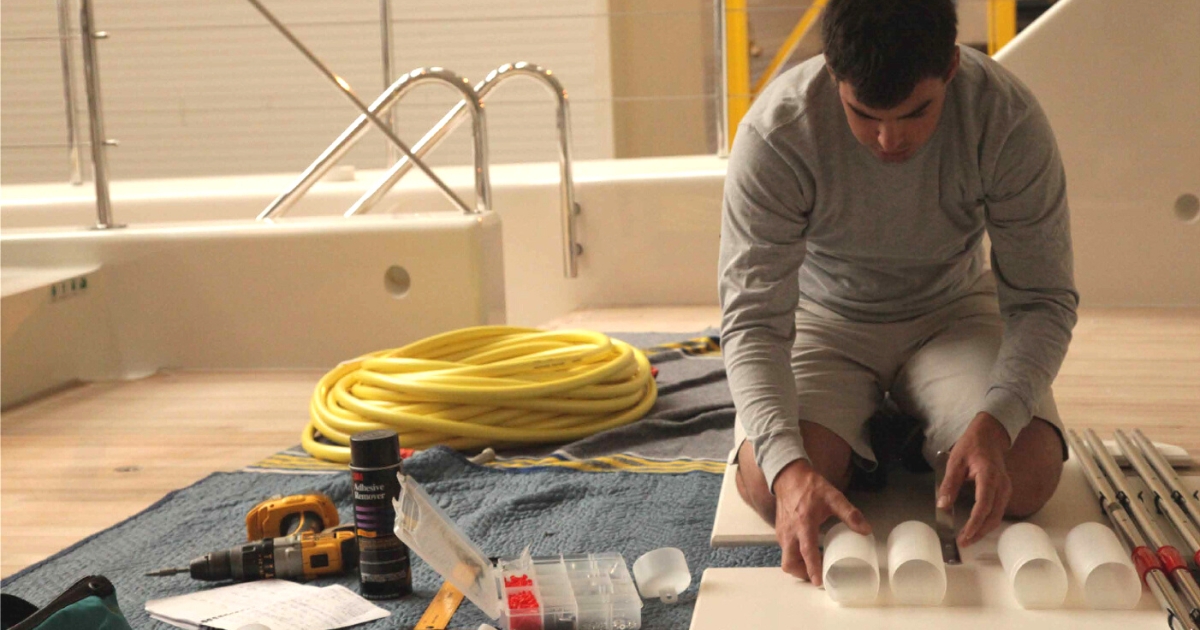
How do I become a deckhand? Qualifications and training
As outlined on the Academy by Ephemeris deck pathway, before you become a deckhand, or take on any crew position, you are required to have STCW Basic Safety Training and be able to produce a ENG1 medical certificate to ensure that you can evidence being both safe and medically fit enough to perform your role. Alongside these bare minimum requirements, there are also numerous additional qualifications you can consider working towards in order to help you scale the deck career ladder.
These include a National Powerboat Certificate, a VHF Radio Operator Course and a MCA Yacht Rating Certificate, with some larger motor yachts also requiring a certificate in Proficiency in Designated Security Duties (PDSD) for those who have security duties on ISPS-compliant yachts above 500GT (gross tonnage). For more information, visit the Academy by Ephemeris website.
Bosun: The day to day
If you’ve banked at least two years as a deckhand/lead deckhand and have natural leadership qualities, the next logical step is to apply for a bosun position. As the most senior member of the deck department, you will oversee and manage all on-deck operations, including docking and anchoring procedures, the maintenance of tenders, toys and other onboard equipment, and delegate tasks on a daily basis to more junior crew members. Reporting directly to either the first officer or the captain, the bosun serves as a vital link between the deck department and the bridge, helping to ensure that the day-to-day operations of the vessel run as safely and smoothly as possible.
The bosun is also in charge of safety on deck, meaning that it is vitally important that you are well versed in the yacht’s safety procedures and have all of the relevant qualifications in this area.
How do I become a bosun? Qualifications and training
Although there is no single prescriptive list of qualifications for a bosun position, alongside the STCW certificate, ENG1 Medical Certificate and PB2 or IYT Tender Driver License, generally you will also be required to hold an RYA Yachtmaster Offshore or IYT Master of Yachts <200GT as a bare minimum.

First/Chief Officer: The day to day
As the captain’s second in command, the first/chief officer has wide ranging responsibilities which will keep you constantly on your toes - in a good way! This includes overseeing all deck operations and maintenance, managing deck crew, watchkeeping, as well as performing various administrative duties. The first officer is also required to have up-to-date knowledge of all onboard safety procedures in case of an emergency, and must be able to step up to manage the bridge and navigation systems in the captain’s absence.
How do I become a First/Chief Officer? Qualifications and training
By the time you reach this level on the deck careers pathway, it is all about securing the relevant ‘Certificate of Competency.’ To qualify for a ‘Chief Mate Certificate of Competency’, you must either hold an OOW (Officer of the Watch) Yacht <3000 GT, II/1 Certificate of Competency or have completed all of the requirements for this qualification. In addition, you also need to be in possession of either an IYT Master of Yachts Unlimited or an RYA Yachtmaster Ocean, as well as fulfilling numerous other requirements, such as holding a valid Seafarers Medical Fitness Certificate. Since this role comes with a high level of people management, prospective chief officers should also ensure that they work on their interpersonal skills through courses such as the MCA approved ‘Human Element Leadership and Management Course’, so that they can evidence the ability to both effectively manage and lead crew.

Captain: The day to day
Finally, after successfully scaling the deck careers pathway, we have reached the much revered role of superyacht captain. Alongside actually driving the boat, captains are often described as the ‘CEOs’ of a boat, as they are responsible for running every aspect of a vessel. Their broad-ranging list of daily tasks includes hiring and managing crew, controlling onboard costs, planning and executing voyages to suit the requirements of owners and charter guests, organising repairs and maintenance, ensuring that the boat adheres to all international, flag and port state regulations, maintaining the highest levels of safety and security on board - and the list goes on! Another way of looking at this position is that the captain is ‘chief problem solver’, on a yacht, tasked with ensuring that all onboard issues (whether crew-based, practical or logistical) are resolved as efficiently and smoothly as possible, so that the owner and their guests can enjoy the highest possible levels of service during their time at sea.
How do I become a Captain? Qualifications and training
As with the Chief Mate position, in order to secure a position as a superyacht captain you will need to have the relevant Certificate of Competency: in this case, the Master Yachts <500GT/<3000GT Certificate of Competency. Unsurprisingly, this has a highly thorough process to back it up, including a plethora of licenses which must be secured and a rigorous oral examination to truly put you through your paces. Furthermore, as you would expect from a position with so many facets to it, it takes far more than just having the relevant qualifications to secure your first appointment as a superyacht captain. Other important factors which are considered for a captain’s position include the amount of time spent on board yachts, geographical and yacht handling experience, people management skills, the degree of financial common sense and many more. Since you will be reporting either to the owner’s representative, or the owner themselves, each owner will require a captain to precisely fit their vessel size and itinerary, as well as their own personality, meaning that it is a myth that there is a certain ‘type’ of person suited to becoming a captain. Nevertheless, although qualifications alone won’t necessarily get you all the way to locking in your first captain’s role, being able to show evidence of additional or specialist courses such as ‘Advanced Training for Ships Operating in Polar Waters’ and ‘Helicopter Landing Officer Training’ can also help you make an impression on an owner and stand out from the crowd in what can be extremely tough and competitive interviews. To explore Academy by Ephemeris’ deck pathway for yourself, visit the company’s website here.

Post your comment
You cannot post comments until you have logged in.
No one has commented on this page yet.
RSS feed for comments on this page | RSS feed for all comments
Search articles with keywords

Do you operate a yacht? Our app is perfect for you
How to become a yacht captain - certifications & experience.
Just like any other highly paid and highly specialized position, becoming a yacht captain is a long grind. Nothing is given to you. You have to start from the bottom and work your way up. It is a process that takes many years of sea time, education, and experience.
Assuming that you are relatively new to the industry, it’s best to start from the very beginning. In the following chapters we will go through a detailed breakdown of the certifications and qualifications you need, and show you how to become a yacht captain.
Table of contents
How to become a yacht captain - Basic education
Rya certification, creating your resume, get to a yachting capital.
- "Earning" your first job
- Get experience & continue your education
Climbing the ranks
Becoming a yacht captain, responsibilities of a yacht captain, yacht captain salary, final notes on how to become a yacht captain.
.jpeg)
Before you get your first job onboard of any yacht, there are a few courses you need to take. These are mandatory for everyone who wishes to work onboard, and are commonly known as basic training for seaman:
- STCW 2010 Basic Safety Training (BST) - This training consists of first-aid practices, response to emergencies, personal safety, social responsibility, and best practices for sea survival. The duration of this course is 5 days and pricing starts at $1012.
- Efficient Deck Hand (EDH) course) - This course teaches basic seamanship, rope and wirework, painting and maintenance routines, as well as other safe working practices aboard. Much like the BST, this course is 5 days long and pricing starts at $964).
At this point, what you want to do is get your Royal Yachting Association (RYA) certificate. The Royal Yachting Association (RYA) is a recognized organization that issues your Powerboat Handling Level 2 (basic course), Yachtmaster™ Offshore , and Yachtmaster™ Ocean .
Note that the costs associated with the RYA certificate can vary, as you need to find an associated training center, purchase all the necessary materials, and abide by all the entry requirements. So you might need to do some research at this point.
Once you successfully complete the courses mentioned above, you will need to put your CV together. There are many templates you can use for this purpose. You can start by using this one .
Once your CV is created, you will need to seek out the best yacht crew agencies and start applying to all of them. This page gives a good overview of the most popular options.
Keep in mind that there are many options when it comes to resume templates and yacht crew agencies. It might be a good idea to use Google to find more options.
.jpeg)
To increase your odds of getting a job onboard, you will now need to get to one of the yachting capitals. This is, by far, one of the best tips for ambitious young sailors that want to know how to become a yacht captain.
Don’t get fooled by those who tell you of their single best yachting capital of the world. Depending on your current location and budget, you will have several options. Check this article to start your research.
“Earning” your first job
As soon as you arrive at your yachting capital of preference, you will need to get a job. Similar to any other industry, this usually happens by actively seeking out open positions. For yachting work, this is done through “dock walking”, a term that refers to the process of going from boat to boat, searching for opportunities.
What you want to do here is be pleasant, hand out your CV, grow your network, and offering any kind of service. There might be owners that need help with buffing, sanding, polishing, scrubbing decks… you name it! Take any job that you can because each hour you spend onboard improves your resume.
After a while, you will hopefully manage to get a job aboard a (super)yacht. This is where you want to be. It is important to manage your expectations and prepare to work very hard. Your first job will not be glamorous and it will certainly not be a “working holiday”. You will be living in a cramped scape, away from home, doing chores most hours of the day.
Don’t let the day-to-day tasks discourage you. Everything you do at this point helps you build character and shows that your position is “earned”. You will have many opportunities to gain experience, overdeliver, and start climbing the ladder.
Gain experience & continue your education
As you become more experienced and collect enough hours onboard, you will qualify for a few more courses, which are issued by the Maritime and Coastguard Agency (MCA).
- Officer Of the Watch (OOW) - This course allows you to become an officer on board a vessel up to 3000gt. In order to apply for this course, you will need to meet several requirements, including >250 days onboard, holding an RYA certificate for at least 36 months, and having completed an MCA training record book . The latest is a list of tasks that you need to complete while serving onboard a vessel that exceeds 15 meters in length. Anything smaller is not qualified as valid experience according to the MCA. The modules of OOW include:
- General Ship Knowledge (GSK) - Price between $1000 - $1100
- Navigation & Radar (ARPA operation) - Price upon request
- Global communications training (GMDSS GOC) - Price starting at $1625
- HELM Training Operational Level - Price upon request
- Proficiency in survival cross & rescue boats - Price between $860 - $900
- Electronic Chart Display Information System (ECDIS) Training - Price between $1300 - $1800
Each of the modules, once completed, requires a written exam. This means that you need to find a partner organization where you can go and write the exam. If you pass, the certificate will be sent to your location (including a digital copy that you can add to your resume).
You need to pass all of the modules in order for the MCA to issue your certificate of competence (COC). And as soon as all that is done, you are officially qualified to perform your oral exam for the OOW. Here is a video that shows you the steps you need to follow:
The exam itself consists of a discussion with a qualified instructor, where you go through all the modules through a series of questions. Upon passing the exam, and given that you hold all the aforementioned certificates, you will receive the MCA Yachts OOW certificate and are officially qualified to be a deck officer.
Keep in mind that the certificate itself doesn’t automatically guarantee you a promotion. You might move slightly up the ranks (lead deckhand) but you will still need to gain more experience in the form of additional sea time.
More specifically, you can continue with higher-level education once you gain even more experience on board.
The course you want to do is known as MCA Master 500 yachts . You can do this once your certificate of competence has been issued for OOW and 12 months have passed. You will also need to have an additional 120 days of verified sea service.
The course consists of several master modules, which include:
- Ship Stability - Price: $1500
- Business and Law - Price: $1500
- Navigation, ARPA, and radar simulator - Price: $3350
- Seamanship & Meteorology - Price: $1500
The course also includes some ancillary course modules, as well as the requirements you need to abide by in further detail. Similar to the OOW, you will need to pass a written certificate for each of the modules, in order to proceed to an oral exam to receive your Master 500 certificate of competence (COC).
You now have all the necessary qualifications - there are no more modules. However, you still need to perform an additional 12 months of sea time, and 120 days of sea service.
The final step is getting your MCA Master 3000 certification, a process that consists of an oral exam only. You can find more information about the requirements and components here . The oral prep course for this exam is highly recommended, takes 5 days, and costs between $890 and $1160, depending on the number of students that choose to participate.
Those who have little to no experience tend to think that a captain’s only responsibility is to command the ship. The truth is much “broader”. A yacht captain’s responsibilities are divided into three areas:
- To ensure the safety of life of everyone onboard
- To ensure the safety of the vessel (paperwork, unforeseen circumstances, etc.)
- To ensure the safety of the marine environment
This may sound rather simple, but remember that there are many subcategories that fall under these responsibilities:
- Ensuring the crew is well-trained, rested, and qualified to do their job, all while remaining safe. This requires strong (cross-cultural) people skills and is probably the hardest part of the job.
- Make sure that all your personal certificates, as well as the vessel documentation, is in order.
- Staying up to date with yacht inspection, maintenance, and logging all the necessary information. You can completely automate this responsibility by using our software, PlanM8 .
- Make sure that the vessel is compliant with the International Safety Management code
- Navigation of the vessel
- Make sure the yacht owner (or guests) are satisfied.
The salary of a yacht captain depends on several factors, including the years of experience, the size of the vessel, and the duration of the contract. Generally speaking, the low end of the salary is approximately $5000 per month and the high end exceeds $18.000 per month. For more information, check this resource .
After reading all of the above you should have a better idea of how to become a yacht captain. There are many courses you need to complete and lots of personal sacrifice in the form of sea time. This is why only the most passionate ones - those willing to go the extra mile - will manage to get a hold of the helm.
Remember that in between each of your certifications it is important to get as much sea time as possible, doing everything in your power to learn from the master on board. Much like any traineeship, your primary concern should involve gaining lots of experience.
The discipline and character you build along your former years will help you understand the importance of continuous education. You will naturally want to familiarize yourself with the latest industry practices and improving your abilities.

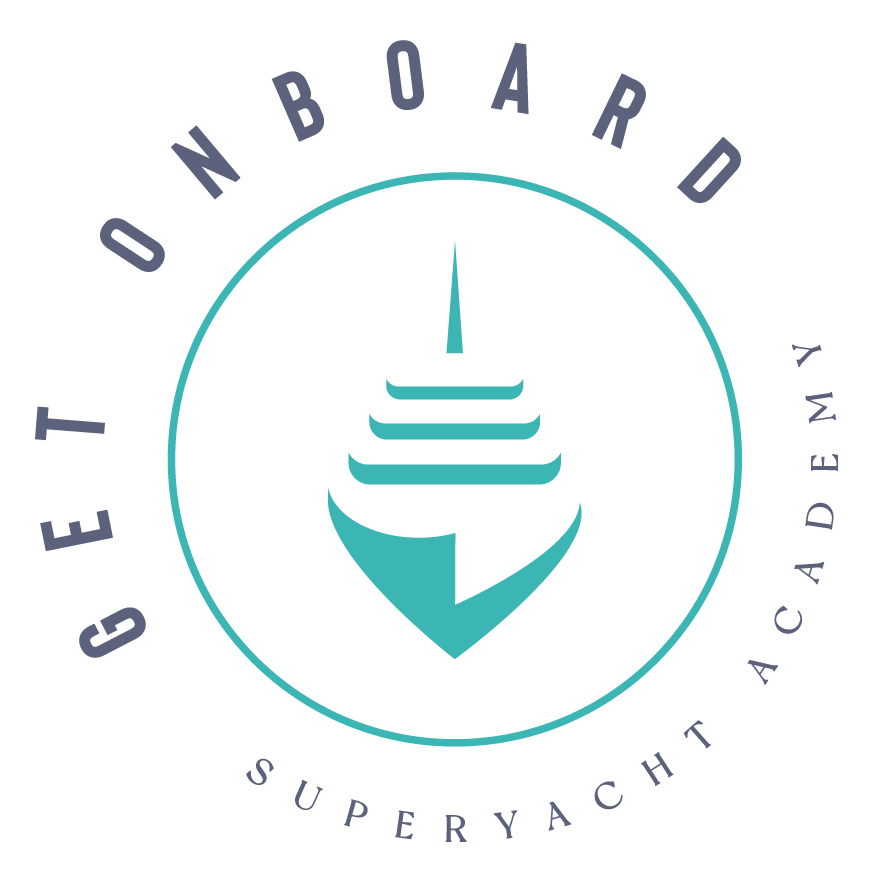
Get Onboard
Superyacht Training

What qualifications are required to work on a Superyacht?
So you wonder- what are the essential yacht qualifications and certifications needed to work as yacht crew? No matter whether you are the most experienced captain or a brand new yachtie, it is essential that you acquire, and maintain your yacht qualifications and certifications up to date. In order to be eligible to work at sea, there are some mandatory legal requirements:
- STCW basic training, including Proficiency in Designated Security Duties (PDSD)
- ENG1 medical Examination
STCW Basic Safety Training Yacht Certificate
The STCW yacht qualification is the Standards of Training, Certification and Watchingkeeping (STWC) course and it’s a compulsory requirement for any seafarer employed at sea. The STCW Basic Safety Training yacht qualification comprises five modules which take eleven days to complete. The modules are personal survival techniques, firefighting, elementary first aid, personal safety and social responsibility, and proficiency in designated security duties. Learn more about the STCW Basic Safety Training certificate here.
ENG1 SEAFARER MEDICAL CERTIFICATE
A seafarer medical certificate is mandatory for anyone hoping to get a job on a yacht. The most popular and widely recognised of the available seafarer medical certificates is the ENG1. The ENG1 Medical is a basic medical certificate and is as essential as your STCW’10. It is a mandatory requirement to prove you are fit to work as a yacht crew member at sea. Only MCA-approved doctors can perform an ENG 1 medical exam. Learn more about the ENG1 Seafarer Medical Certificate .
Once you are confident you are fit and able to work at sea, it’s time to complete your additional training in the department you feel is most appealing. Finding your first job on a super yacht is by far the most challenging part of the process, which is why we strongly suggest you look into completing additional courses in order to better your chances of being hired. We offer full career packages for the deckhands, stewardesses, chefs and engineers. While the STCW and ENG1 are the only compulsory courses that you need to complete in eligible to work at sea, there are various other courses you can complete that will greatly enhance your CV. These include deck modules like, Powerboat Level 2 , Yacht Rating certificate , Jetski licence , and Stewardess training which includes flower arranging, barista training, wine pairing and basic housekeeping skills.
While the yachting industry has many perks, it certainly isn’t for everyone. Often you are required to spend long periods away from friends and family as well as working long hours living in a shared work environment. Take a look at our article to learn the truth about yacht crew life and see if working on a yacht is really for you. Do you still have some unanswered questions? Why not download our eBook and find out all the insider tips of surviving, and preparing for yacht crew life , or contact the Get Onboard team.
Needing more?
Error: Contact form not found.
RYA/MCA Online
1. what are the basic requirements you need to be eligible to work in the yachting industry, 2. what is the stcw and why do i need it, 3. what is the eng1 medical certificate, 4. what land based experience will help me find a super yacht job, 5. what are the different departments onboard, 6. what crew training is required for me to work as a junior deckhand.
- Yachtmaster/Coastal Skipper Theory
- Yachtmaster/Coastal Practical
- Specialist Super Yacht Training Course (Deck Hand Training Course)
- RYA Power Boat Level II
- RYA Personal Watercraft Course
- RYA Competent Crew Certificate
- RYA Day Skipper Theory and Practical Certificates
- VHF Radio Operator’s License
7. What crew training is required for me to work as a junior stewardess?
- Stewardess Course
- Proficiency in Designated Security Duties (PDSD)
- MCA Food Safety Level 2
- RYA Powerboat Level 2
8. How do I book my training courses?
9. how do i get my first job on a yacht, 10. are these courses worth it, or am i just wasting my money, 11. will i get hired for my first job from south africa, 12. what is daywork, 13. what are the best locations to get a yacht job, 14. how much can a motor yacht stewardess or deckhand earn, 15. what are the negatives of working on a yacht, 16. what are the positives of working on a yacht, 17. is working on a super yacht for everyone, 18. what is the minimum age to work on a yacht, 19. is accommodation provided when i am completing my yacht training in cape town.
Impartial training and careers advice
Call us: +441983 280 641
+441983 280 641
What qualifications do you need to work on a Superyacht?
- What qualifications do you need to work ...
Wondering how to get a job on Superyachts? One of the first things you’ll need to consider is your qualifications! In this blog, we’ve outlined the mandatory and desirable certifications you’ll need to start applying for your dream job on the ocean…
Whilst Superyacht jobs are (of course) among the best in the world, they do have a few similarities with your average 9-5-er…
…Namely, in that there are specific qualifications you’ll need to have in order to be considered for a role.
What’s more, as well as mandatory qualifications and certifications, there are some “desirables” that are useful to have under your belt, and that will help you stand out from the crowd of Superyacht job applicants!
We’ve shared all these below – so, if you’re wondering how to get a job on Superyachts and want to know what qualifications you need, be sure to read on…
The mandatory qualifications you need to work on Superyachts are:
1. eng1 medical certificate.
First things first, you’ll need to get your ENG1 Medical certificate – something that is required of all “ seafarers .”
In a nutshell, this certificate demonstrates that you have the level of health and fitness required to carry out work on board a Superyacht safely, both in your day-to-day role and in emergencies.
It’s based on international guidelines from the Standards of Training, Certification and Watchkeeping for Seafarers (STCW), the Maritime Labour Convention (MLC) and the Internal Maritime Organization (IMO) / International Labour Organization (ILO) guidelines on medical examinations of seafarers.
During this medical examination, a doctor will ask you about your medical history, and you’ll be weighed, measured, tested on your hearing and sight, given a physical examination, and asked to provide a urine sample.
There are three outcomes you can receive from the ENG1 Medical; fit without restrictions, fit with restrictions, or temporarily or permanently unfit.
You’ll need to be classified as fit without restrictions or fit with restrictions in order to pass (though “with restrictions” means you’ll be limited on the places you can go and activities you can undertake).
Once you’ve passed, the certificate lasts a full two years.
Colour blindness (assessed in the Isihara plate screening part of the medical) can unfortunately cause you to fail your ENG1 Medical examination; however, there are way around this, which we’ve shared in our “What if I fail my ENG1 medical” blog .
You can also find out more about this certification, what it involves and how you can get yours in our dedicated “The ENG1 Medical” blog.
2. STCW Basic Safety Training certification
Once you’ve passed your ENG1 Medical, you can move on to the second mandatory qualification for Superyacht jobs; STCW Basic Safety Training .
This is a requirement for anyone who wants an office on the ocean, and on any commercial vessel, including cruise ships, ferries, and, of course, Superyachts.
As mentioned above, STCW stands for Standards of Training, Certification, and Watchkeeping. It first came about in 1978, and was most recently amended in 2010.
With this qualification, you’ll be able to demonstrate to Superyacht employers that you have the knowledge and practical experience to respond to an emergency on board.
To achieve this certification, you’ll need to attend and actively participate in all the following training elements:
- Fire Fighting and Fire Prevention
- Personal Safety and Social Responsibilities (PSSR)
- Proficiency in Security Awareness (PSA)
- Sea Survival
- Elementary First Aid
This is just one of the courses we run here at Flying Fish (we’re recognised by the MCA to deliver it), both on its own and as part of our Superyacht Deckhand and Superyacht Stewardess courses, among others.
To find out more about the course and what it involves, be sure to visit the STCW Basic Safety Training page of this website!
Some other “desirable” qualifications you should also consider include:
1. online mca proficiency in designated security duties (pdsd).
This course (which is typically completed in a single day) will qualify you to undertake security-related duties onboard a Superyacht – it’s a great extra to have on your Superyacht CV !

2. RYA Powerboat Level 2
Anyone planning to work professionally in the Superyacht industry will benefit hugely from this qualification , as they’ll be required to drive tenders and other support craft on board a Superyacht.
3. RYA VHF Radio
An absolute must for anyone planning to work at sea, this qualification will demonstrate your proficiency in operating a VHF/DSC radio device, and your understanding of radio language, etiquette, and emergency procedures.
… all of which are included our Superyacht Stewardess and Superyacht Deckhand courses at Flying Fish!
What’s more, on our course to become a Superyacht Deckhand , you’ll also undertake and receive qualifications for:
- Superyacht Deckhand Certificate
- RYA Personal Watercraft Course (PWC)
- RYA Diesel Engine Maintenance
- Ropework, essential knots and splicing
- Maintenance day, teak work, repairs, washdowns, cleaning the stainless yacht maintenance
- RYA two-day boat handling course
And should you choose to sign up for our course to become a Superyacht Stewardess , you’ll undertake and receive qualifications for:
- Superyacht Interior Certificate
- CIEH Food Safety Level 2
- Barista training, wine appreciation and cocktail mixing courses
- Customer service training
In addition, you’ll be able to increase your chances of getting a job on Superyachts even more by having the opportunity to attend our Superyacht Recruitment Event in Antibes, use our free online recruitment service, and undergo our specialist CV clinic.
Hopefully, all the above will have given you more insight into qualifications and how to get a job on Superyachts.
If you’d like to undergo any of the qualifications we’ve shared in this blog, don’t hesitate to give us a call and we’ll get you booked in!
Get qualified today
Related articles
- Seafarers Tax
Do I need to pay off my Student loan if I work on a Superyacht?
Good question! First, let me say that the information below is aimed at people who have studied in the UK and took out a Student Loan to cover course ...
Have I got the right experience to work in yachting?
If you’re thinking about working on board a Superyacht, we share the skills and experience you need and how to get into the yachting industry in thi...
Download – Ultimate Guide to Working on Superyachts
So you’re thinking about getting a job on a Superyacht? Having a career on a Superyacht is a dream job: it will change your life forever. You g...
How to Become a Yacht Captain? Step-By-Step Guide
Setting sail on the high seas as a yacht captain is a dream that captivates the hearts of many. The allure of commanding a vessel, exploring breathtaking destinations, and living a life intertwined with the ocean’s vastness is undeniably enticing. However, this coveted role comes with great responsibility and requires a unique set of skills and qualifications.
In this article, we embark on a journey to unravel the path of becoming a yacht captain. We will delve into the responsibilities that come with this esteemed position and the skills needed to excel in the role. From mastering navigation and seamanship to leading a crew and ensuring the safety of all on board, the role of a yacht captain demands a comprehensive understanding of both the art and science of sailing.
While the journey to becoming a yacht captain may be challenging, it is a rewarding pursuit for those who possess a deep love for the sea and a desire for adventure. Whether you aspire to captain luxury superyachts or explore remote corners of the world on expedition vessels, this article will serve as a compass, guiding you through the necessary steps and providing insights into the world of yacht captains.
So, hoist the sails, secure the lines, and join us on this voyage as we explore the path to becoming a yacht captain and the exciting possibilities that await those who choose to navigate the oceans as masters of their own destiny.
Understand the Role of a Yacht Captain:
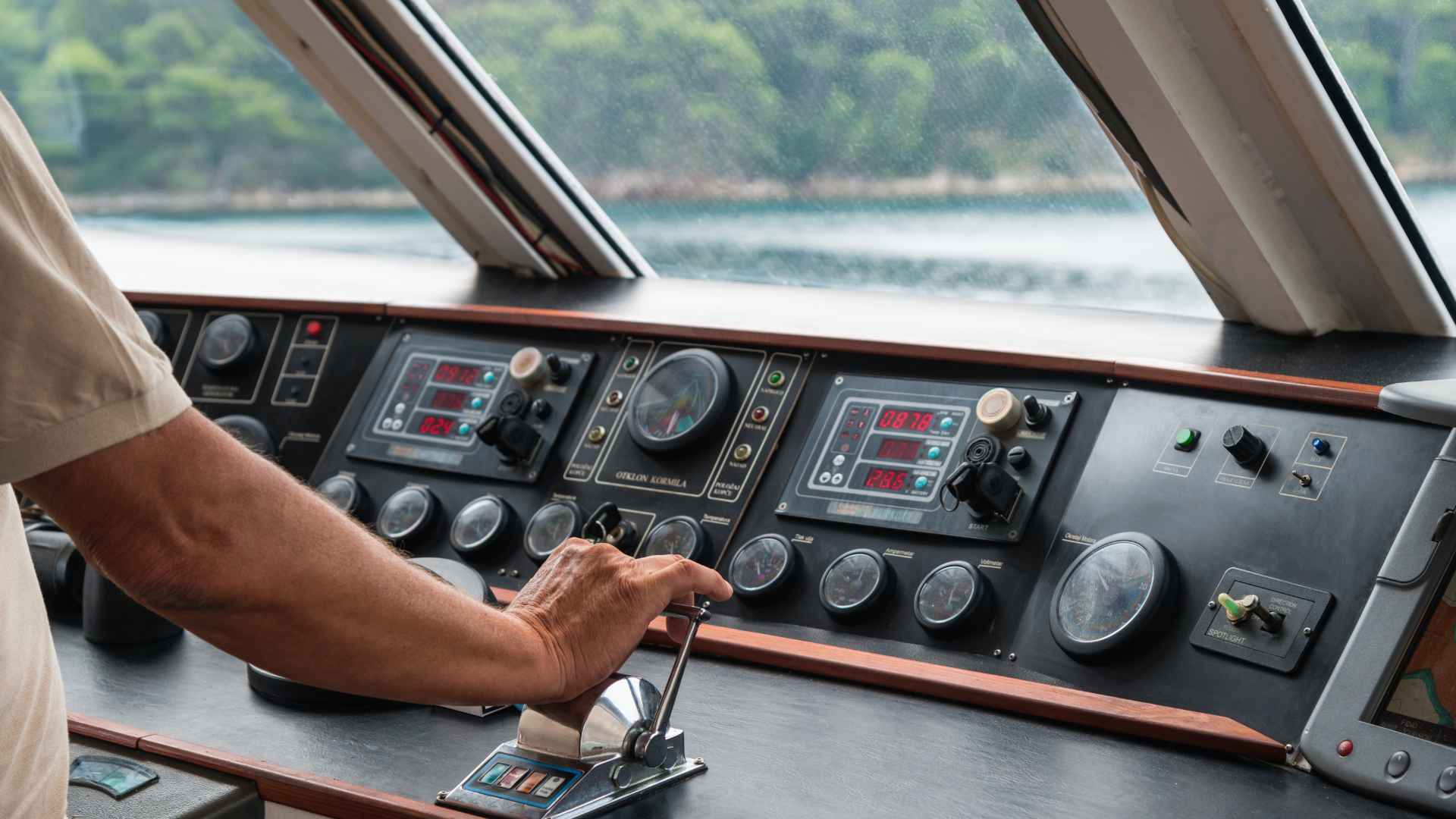
What are the primary responsibilities of a yacht captain?
The primary responsibilities of a yacht captain involve the overall operation and management of a yacht. Here are some key areas of responsibility:
- Vessel Navigation: The captain is responsible for safely navigating the yacht, ensuring it follows maritime regulations and adheres to navigation rules. This includes charting courses, monitoring weather conditions, and operating navigation equipment.
- Crew Management: The captain oversees the crew and is responsible for their training, supervision, and performance. They assign duties and delegate responsibilities to ensure smooth operations on board. Effective crew management involves fostering teamwork, promoting a positive work environment, and addressing any issues that may arise.
- Guest Safety: The safety of passengers and guests is a top priority for a yacht captain. They ensure that all safety protocols and procedures are in place and followed diligently. This includes conducting safety briefings, maintaining emergency equipment, and implementing appropriate security measures.
- Maintenance Oversight: The captain is responsible for the overall maintenance and upkeep of the yacht. They oversee routine maintenance tasks, coordinate repairs and inspections, and ensure that the vessel meets all safety and regulatory requirements. This includes managing budgets, inventory, and working closely with engineers and technical staff.
Effective Communication, Leadership, and Problem-Solving Skills:
Being a yacht captain requires strong communication, leadership, and problem-solving skills due to the nature of the role:
- Communication: The captain must effectively communicate with the crew, guests, and other stakeholders. Clear communication ensures smooth operations, fosters teamwork, and promotes safety on board.
- Leadership: A captain is expected to lead by example, inspire the crew, and make informed decisions in high-pressure situations. They must possess strong leadership skills to guide the team and manage various challenges that may arise.
- Problem-Solving: Yacht captains often face unexpected situations or emergencies. They need to think critically, make quick decisions, and find solutions to ensure the safety of everyone on board. Problem-solving skills are crucial for handling unforeseen circumstances effectively.
Necessary licenses and certifications required to become a yacht captain
To become a yacht captain, individuals must acquire the necessary licenses and certifications. The specific requirements may vary depending on the country and the type of vessel. Here is a general overview:
- OUPV (Operator of Uninspected Passenger Vessels) License: This license, also known as a six-pack license, is required for operating uninspected vessels carrying up to six paying passengers. It allows captains to operate charter boats, fishing boats, and small passenger vessels.
- Master License: The Master License allows captains to operate larger vessels that carry more passengers. There are different levels of Master licenses, such as Master 25, 50, 100, 200, and 500. The number denotes the maximum gross tonnage of the vessel.
Eligibility criteria for these licenses typically include:
Meeting the minimum age requirement (usually 18 years or older).
- Accumulating a specific number of sea service days, which may vary based on the license level.
- Passing a written examination that tests knowledge of navigation, safety, and other relevant topics.
- Meeting medical fitness requirements.
- Providing character references and completing an application process.
It’s important to note that these requirements can vary between countries and regions. It’s recommended to consult the maritime authority or governing body in the relevant jurisdiction to get accurate and up-to-date information on licensing and certification requirements for yacht captains.
Gain Experience and Build a Skill Set:
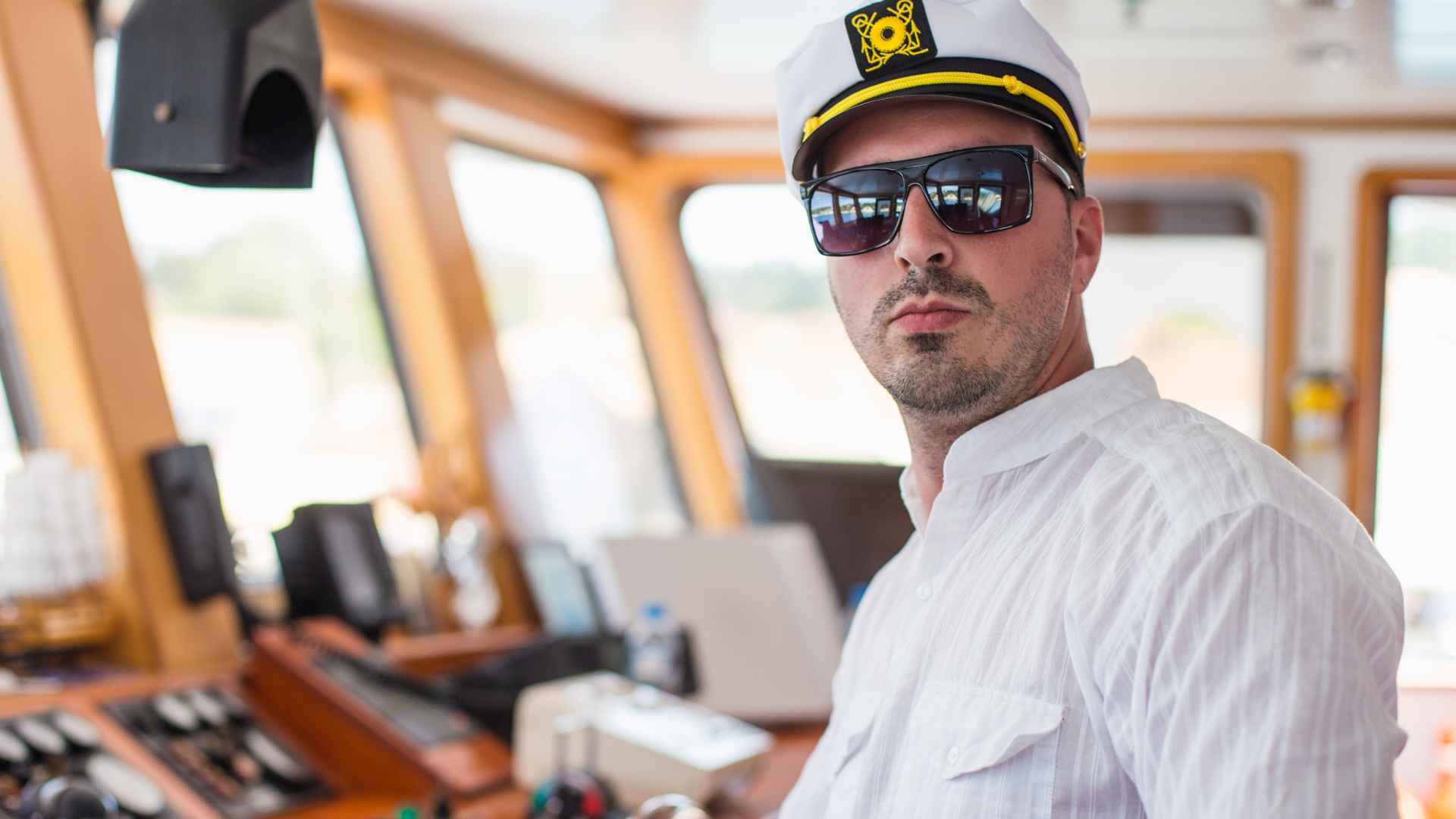
Importance of gaining foundational boating knowledge
Gaining foundational boating knowledge is essential for aspiring yacht captains. It provides a solid understanding of boating principles and sets the groundwork for further development. Here are some key points to consider:
- Understanding Navigation Rules: Familiarize yourself with the rules of navigation, including buoyage systems, right of way, and international maritime regulations. This knowledge ensures safe navigation and promotes responsible boating practices.
- Weather Patterns and Conditions: Learn about weather patterns, tides, and their impact on boating. Understanding weather forecasts and how to interpret them is crucial for planning safe voyages and avoiding hazardous conditions.
- Basic Boat Handling: Acquire basic boat handling skills, including steering, docking, and maneuvering in different environments. This knowledge forms the foundation for operating and controlling a vessel effectively.
There are various resources and courses available to help gain this knowledge. Consider taking boating safety courses offered by organizations such as the United States Power Squadrons (USPS), the U.S. Coast Guard Auxiliary, or local boating associations. Additionally, introductory sailing lessons or basic boating courses can provide valuable insights into navigation and boat handling.
Value of gaining hands-on experience by working as a deckhand or crew member on a yacht
Gaining hands-on experience by working as a deckhand or crew member on a yacht is invaluable for aspiring yacht captains. This experience provides insights into yacht operations, teamwork, and the daily responsibilities involved. Here are a few benefits:
- Exposure to Yacht Operations: Working on a yacht allows you to observe and participate in various tasks related to vessel maintenance, navigation, safety protocols, and guest services. You’ll gain practical knowledge and understand the dynamics of running a yacht.
- Teamwork and Communication Skills: Collaborating with other crew members fosters teamwork and effective communication. Learning to work efficiently as part of a team is crucial for a yacht captain, as they need to lead and coordinate the crew effectively.
- Networking Opportunities: Building connections within the yachting industry can lead to future job opportunities and career advancement. Engage with experienced professionals and seek mentorship to enhance your learning and growth.
Benefits of enrolling in professional training programs and maritime academies
Enrolling in professional training programs and maritime academies can significantly enhance your knowledge and credibility as a yacht captain. Here are a few options to consider:
- STCW (Standards of Training, Certification, and Watchkeeping) : The STCW training is an internationally recognized set of standards that provide essential safety and operational training for seafarers. This certification covers areas such as firefighting, personal survival techniques, first aid, and maritime security.
- RYA (Royal Yachting Association) Qualifications: The RYA offers a range of qualifications that are widely recognized in the yachting industry. These certifications cover areas such as navigation, radar operation, diesel engine maintenance, and yachtmaster training.
- Maritime Academies: Consider attending a maritime academy that offers specialized training for yacht captains. These institutions provide comprehensive education and practical experience, preparing you for various challenges of the role.
Investing in professional training demonstrates your commitment to the industry and enhances your skill set, making you a more competitive candidate for yacht captain positions.
Remember, gaining experience and building a skill set takes time and dedication. Embrace opportunities to learn, be proactive in seeking hands-on experience, and continually update your knowledge through courses and certifications.
Obtain the Required Licenses and Certifications:
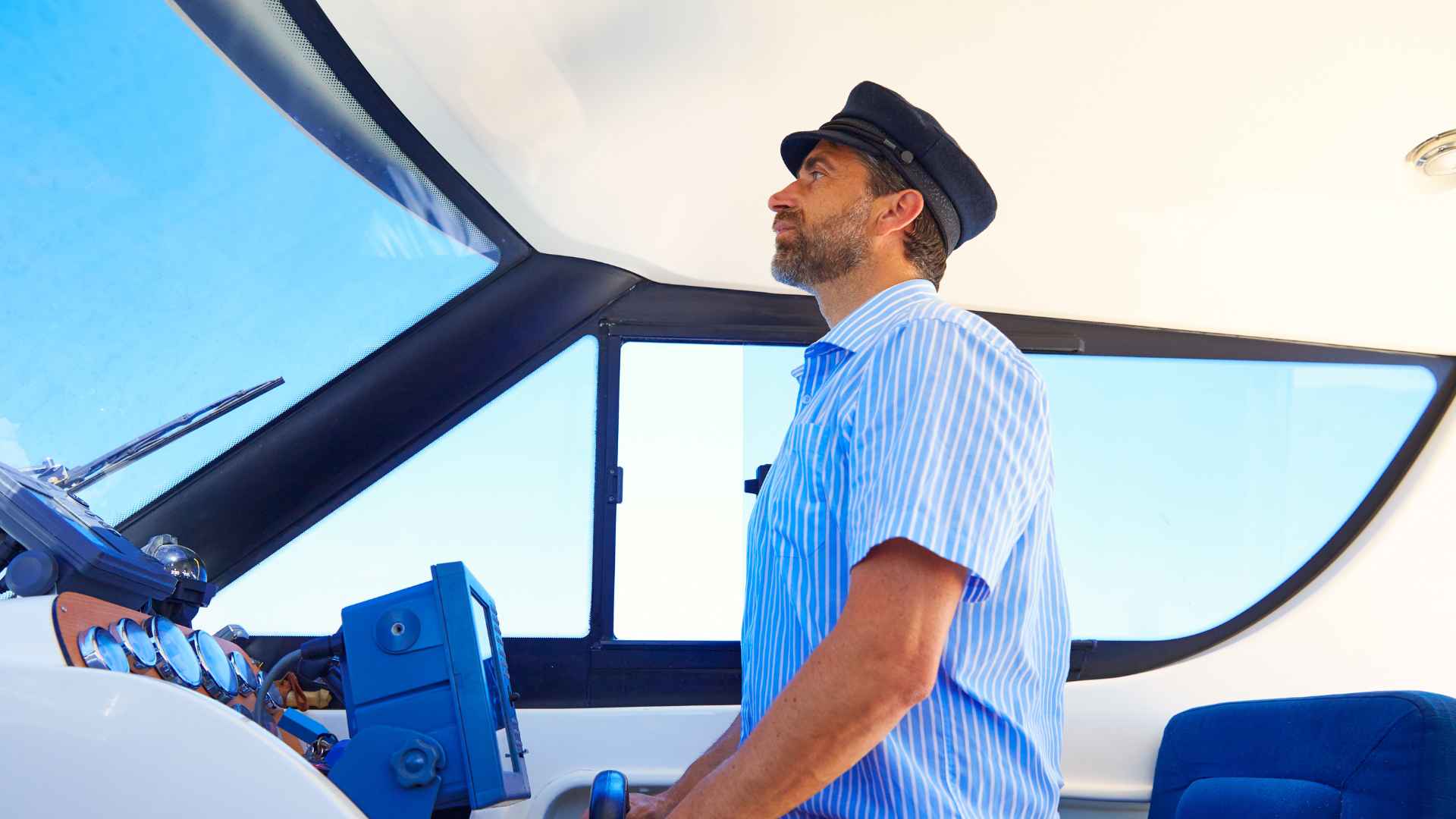
Familiarize yourself with licensing authorities:
To obtain the necessary licenses and certifications as a yacht captain, it’s important to familiarize yourself with the licensing authorities and organizations that oversee the process. The specific authorities may vary depending on the country or region. Here are a couple of examples:
- US Coast Guard: In the United States, the US Coast Guard is responsible for issuing licenses and certifications for yacht captains. They have different licensing levels, including OUPV (Operator of Uninspected Passenger Vessels) and Master licenses.
- Maritime and Coastguard Agency (MCA): The MCA is the licensing authority in the United Kingdom and is recognized internationally. They offer a range of certifications, including the Officer of the Watch (Yacht <3000 GT) and Master (Yachts) certificates.
Each licensing authority has specific requirements and application processes. It’s important to thoroughly research and understand the guidelines and regulations set forth by the respective authority in your jurisdiction.
Complete the required sea time and training:
Accruing the necessary sea time and training is a crucial step in obtaining your yacht captain licenses. The requirements may vary depending on the license level you are pursuing. Here are some key points to consider:
- Sea Time: Licensing authorities typically require a specific number of sea service days, which may include both qualifying sea service and additional time as an observer. The required sea time can vary depending on the license level and may involve different vessel sizes and types.
- Additional Training: In addition to sea time, you may need to complete additional training courses to meet the requirements. This can include training in radar operation, celestial navigation, firefighting, medical certifications like Basic First Aid or Medical Care, and other relevant topics. These courses enhance your skills and knowledge as a yacht captain.
It’s essential to maintain accurate records of your sea time and training, including the vessel names, dates, and duties performed. This documentation will be required during the application process.
Prepare for licensing examinations:
Licensing examinations assess your knowledge and competency as a yacht captain. Here are some tips to help you prepare:
- Study Relevant Regulations and Rules: Familiarize yourself with relevant regulations, such as navigation rules, safety procedures, and maritime laws specific to your jurisdiction. Study the applicable licensing guides or handbooks provided by the licensing authority.
- Navigation and Safety Procedures: Review navigation techniques, chart plotting, understanding aids to navigation, and collision regulations. Ensure you have a strong understanding of safety procedures, emergency protocols, and international maritime conventions.
- Preparatory Courses and Study Materials: Consider enrolling in preparatory courses offered by recognized training centers or maritime academies. These courses are designed to help you prepare for the licensing examinations and cover the necessary topics in depth. Additionally, study materials such as textbooks, online resources, and practice exams can aid your preparation.
Practice solving sample questions and scenarios to familiarize yourself with the format and structure of the licensing examinations.
Remember to check the specific requirements and recommendations from the licensing authority to ensure you are adequately prepared for the examinations.
By familiarizing yourself with the licensing authorities, completing the required sea time and training, and adequately preparing for the examinations, you can increase your chances of successfully obtaining the necessary licenses and certifications to become a yacht captain.
Advance Your Career as a Yacht Captain:
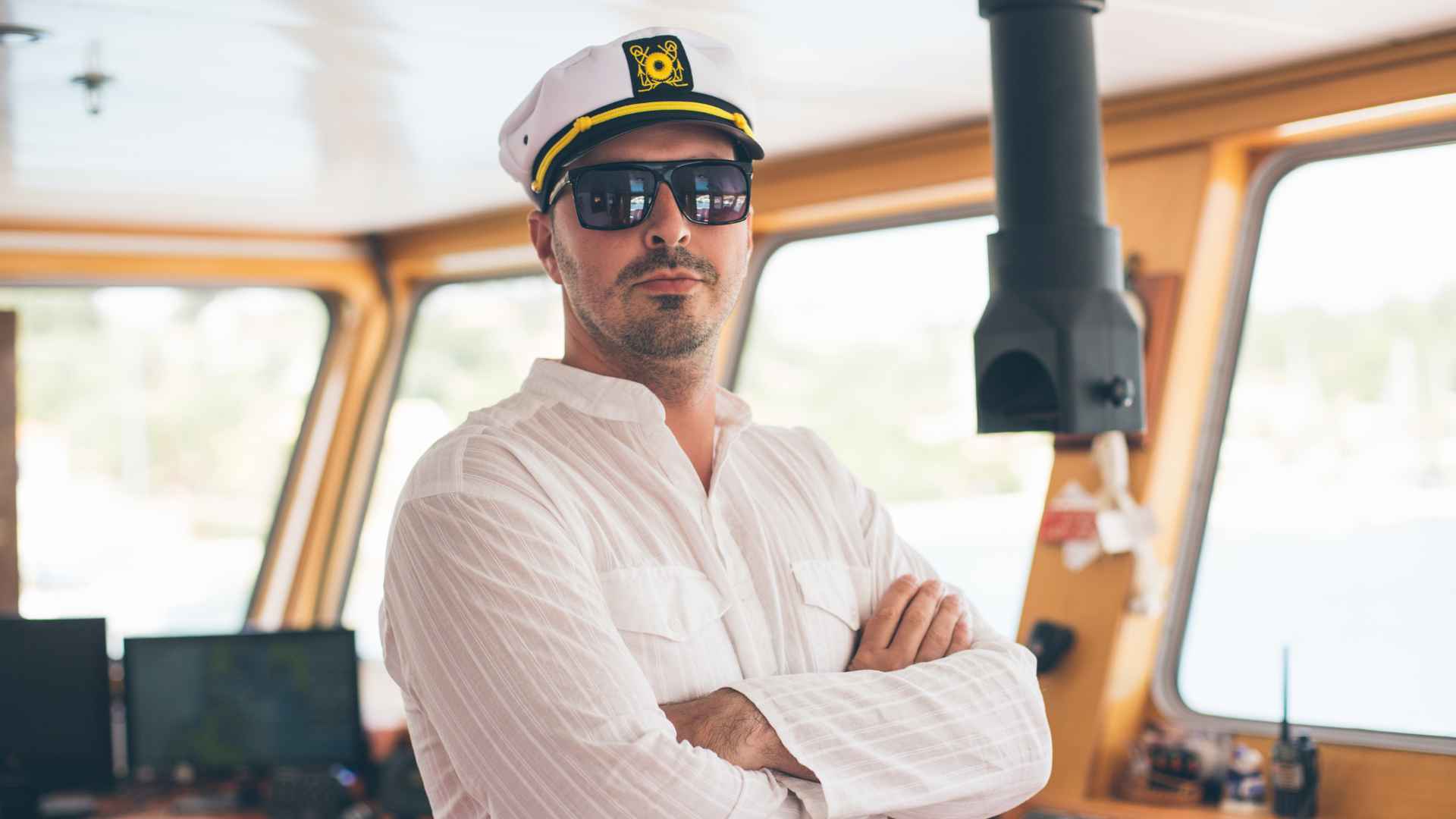
Network and establish connections:
Networking within the yachting industry is crucial for advancing your career as a yacht captain. Building relationships and establishing connections can lead to new opportunities and career growth. Here are some key points to consider:
- Industry Events: Attend industry events, such as yacht shows, maritime conferences, or trade fairs. These events bring together professionals from the yachting industry and provide opportunities to network, learn about new developments, and establish connections with yacht owners, brokers, and industry leaders.
- Professional Associations: Join professional associations and organizations related to yachting and maritime industries. These associations offer networking events, educational resources, and career support. Examples include the Professional Yachting Association (PYA), International Superyacht Society (ISS), or local yachting associations.
- Yacht Brokers and Crew Agencies: Build relationships with yacht brokers and crew agencies. Yacht brokers can connect you with potential employers and job opportunities, while crew agencies can assist with crew placement and career guidance. Stay in touch with them, provide updates on your experience and qualifications, and maintain a professional rapport.
Networking allows you to stay connected with industry professionals, increase your visibility, and access a broader range of opportunities.
Continue learning and professional development:
Continuous learning and professional development are essential for growth and advancement as a yacht captain. Here are some key aspects to consider:
- Stay Updated on Industry Advancements: The yachting industry is constantly evolving, with new technologies, regulations, and best practices emerging. Stay informed about industry trends, updates in safety protocols, navigation technologies, and regulatory changes. Read industry publications, follow reputable online sources, and attend relevant training sessions or workshops.
- Advanced Training and Specialized Certifications: Consider pursuing advanced training courses and specialized certifications to enhance your knowledge and skill set. These can include courses on advanced navigation techniques, superyacht operations, crisis management, leadership development, or specific technical skills like engine maintenance or electrical systems. These additional qualifications make you more competitive in the job market and broaden your career prospects.
- Professional Development Programs: Some organizations and institutions offer professional development programs tailored for yacht captains. These programs focus on leadership skills, management strategies, and industry-specific knowledge. Participating in such programs can enhance your leadership abilities, expand your network, and open doors to new opportunities.
Continuously investing in your learning and professional development demonstrates your commitment to excellence and positions you as a knowledgeable and competent yacht captain.
By networking within the industry, attending industry events, joining professional associations, and staying updated through continuous learning, you can advance your career, establish valuable connections, and position yourself for further growth as a yacht captain.
Watch What it takes to become a superyacht captain! | Video
Top 5 FAQs and answers related to How to Become a Yacht Captain
What qualifications do i need to become a yacht captain .
To become a yacht captain, you typically need to obtain the necessary licenses and certifications. The specific qualifications can vary depending on your location and the type of yacht you wish to captain. Common requirements include accumulating sea time, completing relevant training courses (such as navigation, safety, and emergency response), and passing licensing exams.
How do I gain the required sea time as a yacht captain?
Accruing the required sea time is an essential aspect of becoming a yacht captain. You can gain sea time by working as a deckhand or crew member on yachts, participating in internships or apprenticeships, or volunteering on boats. Keeping accurate records of your sea service days, duties performed, and the vessels you’ve worked on is crucial for meeting the licensing authority’s requirements.
Where can I find training courses for aspiring yacht captains?
There are various options for training courses related to becoming a yacht captain. You can find courses offered by maritime academies, vocational schools, yacht training centers, and professional organizations. Look for courses covering topics such as navigation, seamanship, safety procedures, and marine regulations. Additionally, licensing authorities often provide resources or recommendations for approved training providers.
How long does it take to become a yacht captain?
The time it takes to become a yacht captain can vary depending on individual circumstances, such as prior experience and the amount of time dedicated to training and gaining sea time. It can take several years to accumulate the required sea time, complete training courses, and pass licensing exams. The process also depends on your commitment to acquiring the necessary skills and qualifications.
Is it necessary to have sailing experience to become a yacht captain?
While sailing experience can be beneficial, it is not always a strict requirement to become a yacht captain. Many yacht captains start their careers with motor yachts or work on power-driven vessels. However, having sailing experience can provide you with a broader understanding of boat handling, wind patterns, and sail operations, which can be advantageous in certain yachting environments. It’s important to check the specific requirements and preferences of the licensing authority and potential employers in your desired field.
Conclusion:
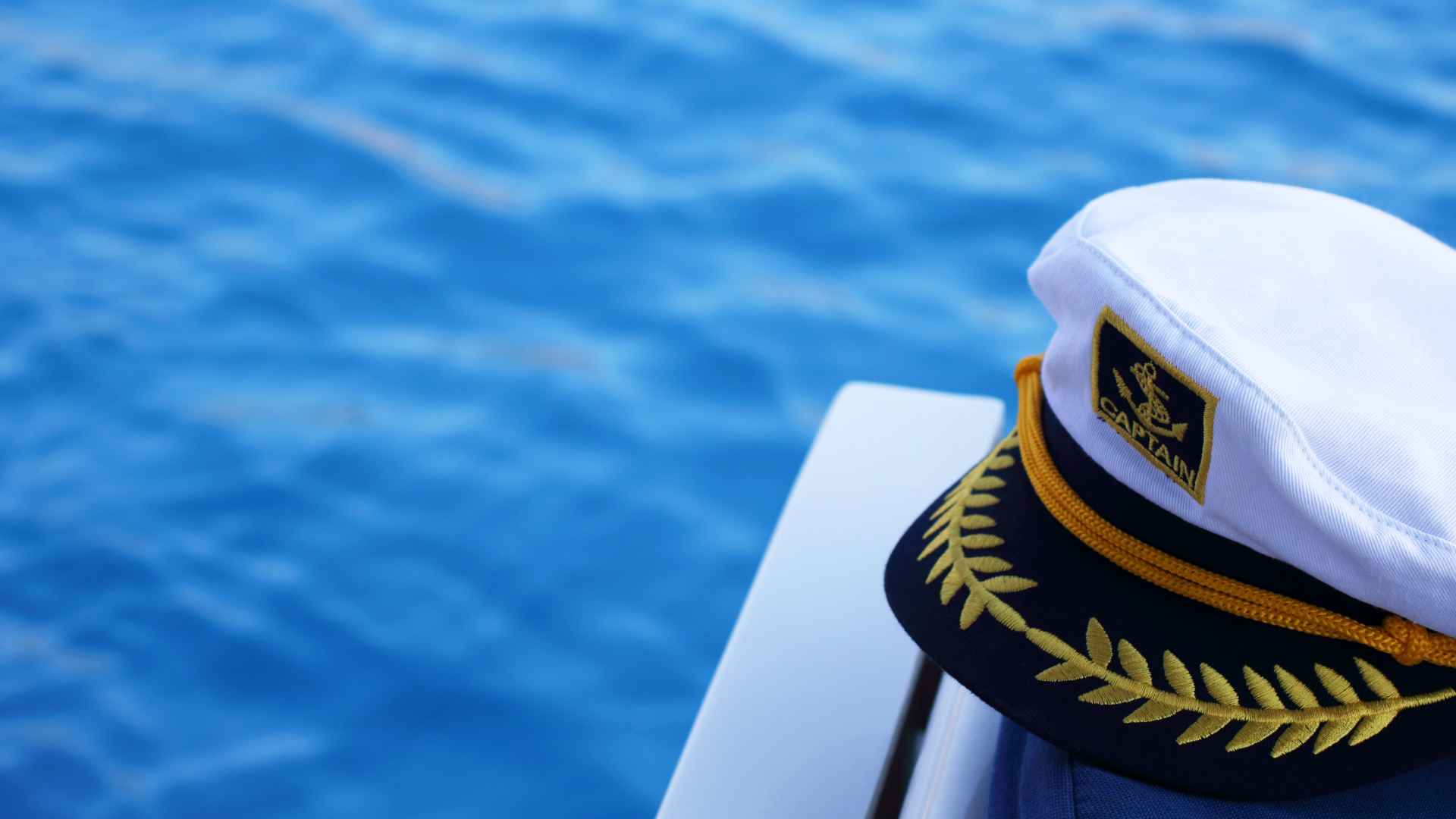
Becoming a yacht captain involves several key steps and considerations. Here’s a summary of the article’s main points:
- Gain Experience: Start by acquiring foundational boating knowledge, understanding navigation rules, weather patterns, and basic boat handling. Seek opportunities to work as a deckhand or crew member on a yacht to gain hands-on experience and learn about yacht operations and teamwork.
- Obtain Licenses and Certifications: Familiarize yourself with the licensing authorities relevant to your location, such as the US Coast Guard or Maritime and Coastguard Agency (MCA). Understand the specific requirements and application processes for obtaining the necessary licenses, which may involve sea time, training courses, and passing examinations.
- Focus on Professional Development: Continuously learn and stay updated on industry advancements. Consider advanced training, specialized certifications, and professional development programs to enhance your skills and knowledge as a yacht captain. This demonstrates your commitment to excellence and broadens your career prospects.
In conclusion, embarking on the journey to become a yacht captain requires dedication, practical experience, and a commitment to ongoing learning. By gaining experience, obtaining the required licenses, and focusing on professional development, you can position yourself for a rewarding career as a yacht captain. The open seas await, offering exciting adventures and the opportunity to lead a skilled crew while navigating luxurious yachts. Start your journey today and set sail towards an incredible future as a yacht captain.
Share How to Become a Yacht Captain? Step-By-Step Guide with your friends and Leave a comment below with your thoughts.
Read How to Build a Casting Deck in an Aluminum Boat in 6 Steps? until we meet in the next article.
Similar Posts
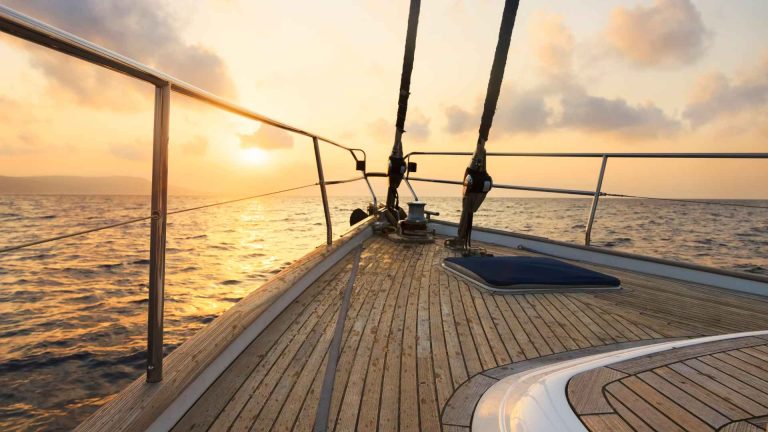
What Is the Best Country to Register a Yacht: Facts to Know
Owning a yacht brings a world of luxury, adventure, and boundless possibilities on the open seas. Whether you’re a passionate sailor or an avid explorer, yacht ownership is an exciting journey. However, amidst the thrill, it is crucial to navigate the legal and administrative aspects of yacht registration. Choosing the right country for yacht registration…
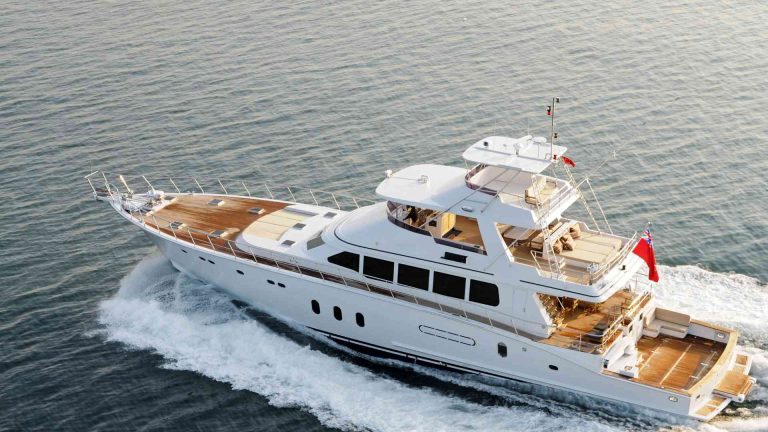
How Does Autopilot on a Yacht Work?
Navigating a yacht across vast, unpredictable waters requires precision, skill, and unwavering attention. Enter yacht autopilot, a technological marvel that has revolutionized the world of boating. It’s the invisible hand at the helm, offering sailors enhanced safety and convenience on their maritime journeys. In this article, we embark on a voyage into the world of…

How Far Can a Yacht Travel? Helpful Examples
Picture this: a majestic yacht glides gracefully through azure waters, the sun setting on the horizon, and the salty breeze carrying whispers of adventure. The yacht, a symbol of luxury and exploration, embarks on a journey that promises the thrill of the unknown and the allure of far-off destinations. Yachting, a symphony of elegance and…
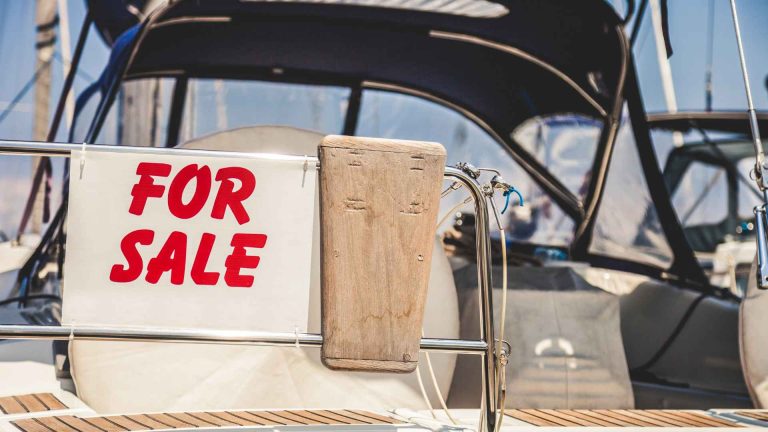
How to Become a Yacht Broker to Sell Your Own Boat? Guide
Becoming a yacht broker to sell your own boat can be a rewarding venture, offering a range of advantages. As a yacht owner, you have firsthand knowledge of your vessel, its unique features, and its history. By taking on the role of a yacht broker, you can leverage your expertise to effectively market and sell…
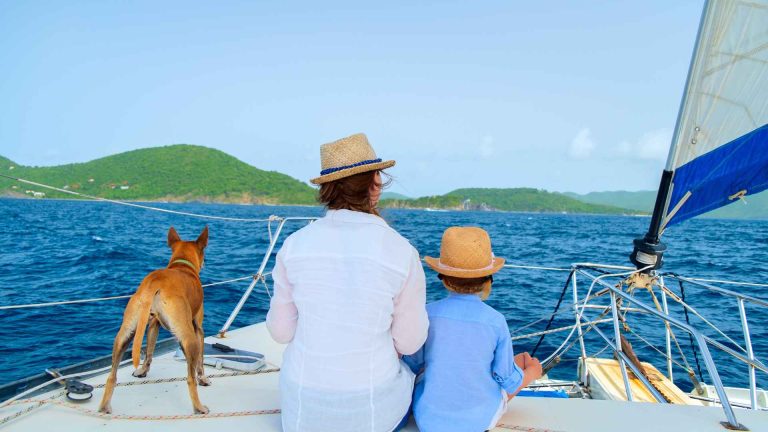
Can You Live on a Yacht? and if so, for How Long? – Guide
Living on a yacht evokes images of sun-kissed days, sparkling waters, and a carefree existence. The allure of a yacht lifestyle has captured the imagination of many, with its promises of adventure, luxury, and a break from the conventional. From the glamorous depictions in movies to the envy-inducing social media posts of jet-setters, it’s easy…
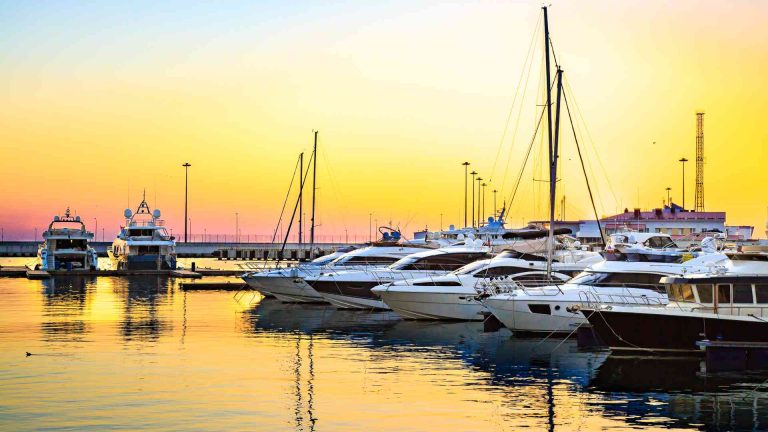
Superyacht vs. Mega Yacht: What’s the Difference? Guide
The glimmering azure waters, the gentle sea breeze, and the feeling of freedom as you sail across the open ocean – it’s no wonder that luxury yachts have captured the imagination of many. For those seeking the epitome of opulence on the high seas, the terms “Superyacht” and “Mega Yacht” evoke images of grandeur, extravagance,…
- Get Certified
- Superyacht Training

Why Choose IYT Worldwide for Your Certification?
The Superyacht industry offers exciting career opportunities around the globe and an IYT certificate offers the most internationally recognised maritime certification in the industry.
- No other yacht certification authority is as international recognised.
- No other yachting company offers such a diverse range of courses.
- Every IYT (COC) course requires a practical on-the-water examination.
- No other national yachting marine certification authority has an internationally recognised ISO quality management system. We are proud to be certified by the Canadian General Standards Board (CGSB)
- No other yachting organisation has been built by professional mariners.
- No other yachting company offers high security certificates with QR code, hologram, photograph and signature strip.
IYT has over 20 years of industry leadership and continues to lead the global maritime industry in certification and nautical standards.
- Recreational
- Privacy Policy & Terms Of Use
- Become a Partner School
- Register with IYT
- Find a School
- IYT E-Learning
- Certificate Renewal & Replacement
- Recreational Training Course Progression
- IYT Passport
- Crossover Opportunities
- Course Progression
- Course Progression Interior
- Dive Boat Training
- Forms And Docs
- Instructor Training
- Personal Watercraft Operator
- Dinghy Sailing Programme
- IYT Try Sailing
- IYT Introductory Sailing Skills
- IYT Day Skipper / Crew Sail
- International Crew
- International Flotilla Skipper
- International Bareboat Skipper
- International Flotilla Skipper Sail – Catamaran
- International Bareboat Skipper Sail – Catamaran
- International Certificate of Competency (ICC Certificate)
- Powerboat Skipper
- Yachtmaster Coastal (Power or Sail)
- Yachtmaster Coastal Sail – Catamaran
- Yachtmaster Offshore (Power or Sail)
- Yachtmaster Offshore Sail – Catamaran
- Yachtmaster Ocean
- Patron de Yates (Yachtmaster Coastal Spanish edition)
- Marine Communications (VHF-SRC)
- Small Powerboat and Rib Master (MCA Recognised)
- IYT Commercial Tender License Course
- Weather Master
- Navigation Master
- Master of Yachts Coastal/Mate 200 Tons (Power or Sail)
- Master of Yachts Limited (Power or Sail)
- Master of Yachts Unlimited
- Superyacht Chef
- Superyacht Deck Crew Course
- Introduction to Yacht Marine Engineering
- Superyacht Hospitality Training
- Boat Engineer Course (SCV Code for Vessels Operating in the Caribbean)
- IYT-MSWI BoatMaster Course
- Become An IYT School
- Upgrade Your School
- Find A School
- Course Levels
- Instructor Qualifications
- Vessel Requirements
- Vessel and Facility Requirements
- Unauthorised Schools and Other Entities
- Shipping & Delivery
- Government Approvals
- Skip to primary navigation
- Skip to main content
- Skip to footer

(866) 300-5984 [email protected]
What are the Requirements for Earning a Captain’s License ?
U.s. coast guard requirements for national oupv or master up to 100 tons.
A Captain’s License is required to operate a commercial vessel or to take paying passengers out on your vessel. Understanding the Captain’s License Requirements is important prior to taking a captain’s license course. The prerequisites should be reviewed before applying for any U.S. Coast Guard credential. This is advised so you don’t spend your time and money pursuing a license that you don’t qualify for. For Maritime Institute’s fee-based credential services, click here to get more info.
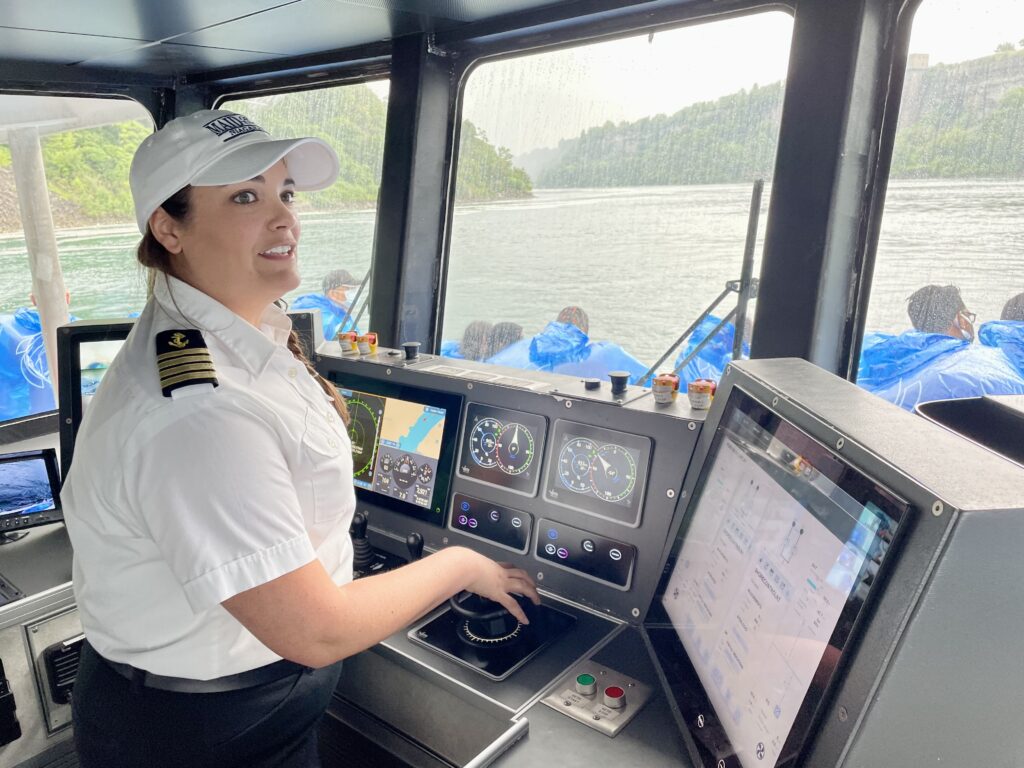
Prerequisites for Operator of Uninspected Passenger Vessels (OUPV/”6-Pack”)
The National OUPV license is limited to uninspected vessels, of less than 100 gross tons, operating on U.S. domestic waters ONLY. Also limited to carrying six or less paying passengers. You must meet all of the requirements established by the USCG National Maritime Center in order to apply for this license. The USCG checklist of requirements is located here on the National Maritime Center website: https://www.dco.uscg.mil/nmc/checklist/ . Under National Officer Endorsements for Deck, click on National OUPV Less Than 100 GRT.
Important sea service requirements for OUPV:
- Must be at least 18 years old.
- Must be able to document 360 days of experience on a vessel, of which at least 90 days must be on Near Coastal/Ocean waters otherwise license will be limited to Inland Waters ONLY. ( See: What Counts as Sea Service )
- 90 days of sea service must be within the last 3 years of when you apply.
- 90 days of sea service must be on Ocean or Near Coastal waters or otherwise the license will be limited to Inland Waters only.
- If you are not a U.S. Citizen, you can apply for this license but it will be limited tonnage and restricted to undocumented vessels.
Prerequisites for Master up to 100 Tons on Inland Waters/Great Lakes
With a Master license you may operate inspected/commercial vessels and also take more than six paying passengers. You must meet all of the requirements established by the USCG National Maritime Center in order to apply for this license. The USCG checklist of requirements is located here on the National Maritime Center website: https://www.dco.uscg.mil/nmc/checklist/ . Under National Officer Endorsements for Deck, click on National Master 100 GL and Inland.
Important sea service requirements for Master Inland/GL:
- Must be at least 19 years old.
- Must be able to document 360 days of experience on a vessel. ( See: What Counts as Sea Service )
- The tonnage of the license (25 Ton, 50 Ton, or 100 Ton) that you get, is determined by your experience. See USCG checklist in the paragraph above for the specific tonnage qualifications .
If you plan on operating an inspected sailing vessel, you must have a sailing endorsement along with the Master Inland/GL license. The required amount of sea service for a sailing endorsement on a Master Inland/GL license is: 180 days on sail or auxiliary sail vessels.
Prerequisites for Master up to 100 Tons on Near Coastal Waters
With a Master license you may operate inspected/commercial vessels and also take more than six paying passengers. You must meet all of the requirements established by the USCG National Maritime Center in order to apply for this license. The USCG checklist of requirements is located here on the National Maritime Center website: https://www.dco.uscg.mil/nmc/checklist/ . Under National Officer Endorsements for Deck, click on National Master 100NC .
- Must be able to document 720 days of experience on a vessel, of which at least 360 days must be on Near Coastal/Ocean waters. ( See: What Counts as Sea Service )
If you plan on operating an inspected sailing vessel, you must have a sailing endorsement along with the Master Near Coastal license. The required amount of sea service for a sailing endorsement on a Master NC license is: 360 days on sail or auxiliary sail vessels.
- Cookie Policy
- Privacy Policy
- Terms of Use
Sign Up For Our E-Newsletter!
Maritime Institute Online Course Portal Book Examination - San Diego, CA
Privacy Overview
Log in to maritime institute.

Start a Superyachting Career
Start working on a superyacht by completing the following steps:.
- Have realistic expectations
- Select a superyacht job department
- Complete superyacht training courses
- Obtain an ENG1 medical certificate
- Select a location to join the industry
- Obtain visas & documentation
- Create a superyacht CV
- Find superyacht job vacancies
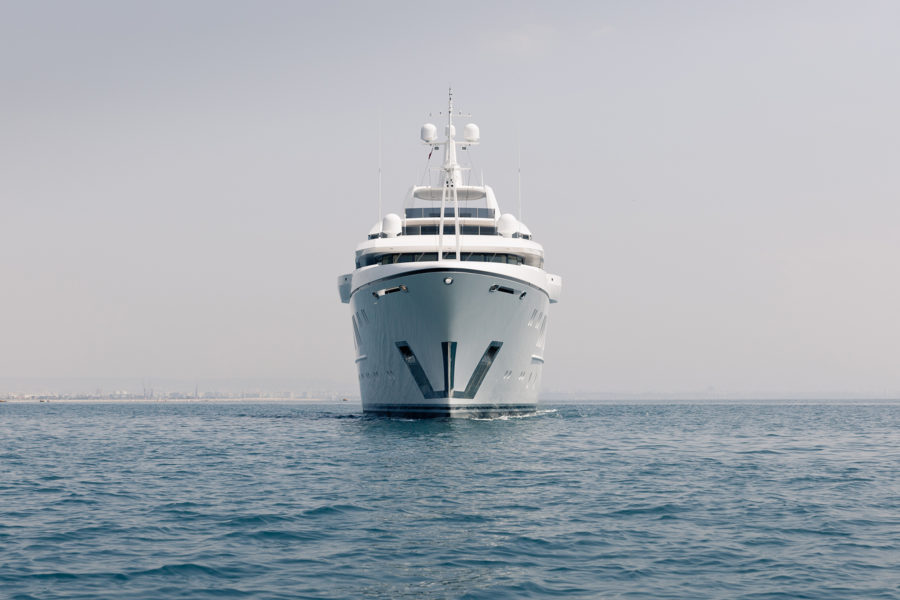
1. Have Realistic Expectations
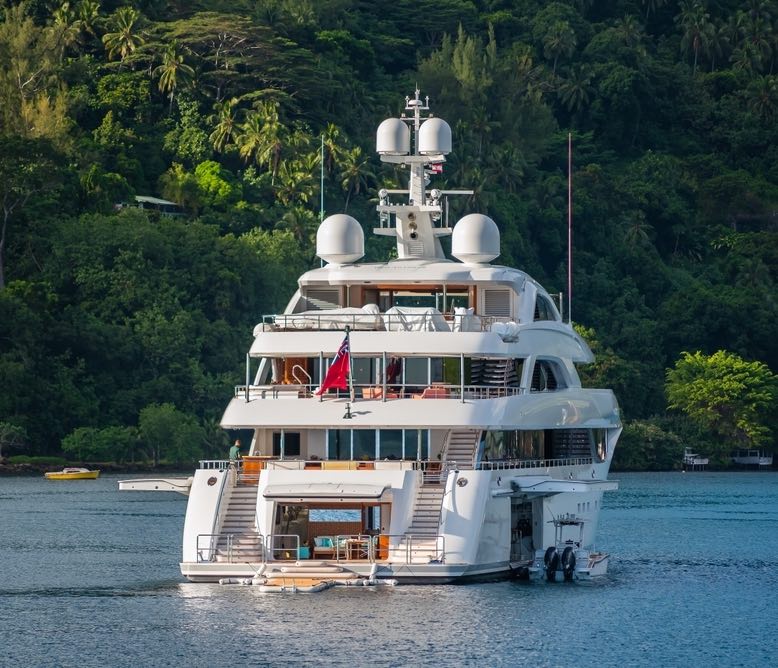
- The superyacht industry is highly competitive and in order to qualify for employment a financial investment is required (training & travel)
- For applicants without relevant experience, being physically present at or near Superyachting hubs when searching for employment is important
- Obtaining the correct qualifications does not guarantee employment and training is not refunded
- Your passport and ability to obtain Visas have an impact on your employability
- Having contacts, experience, and the correct attitude is an advantage
- Working in the industry comes with some amazing benefits but like any career path, there are also disadvantages
- Being an extremely "hard worker" is not an advantage, it is expected
- The quality of work and attention to detail needs to be of a very high standard
- You need to be well-mannered, professional, and well-suited to living in close proximity to other crew
- Presentation matters
- Getting advice from multiple sources including crew who work in the industry is advised
- Different yachts, owners, crew, and itineraries = different experiences
2. Choose the Yacht Crew Department you Wish to Work in
Before joining the yachting industry, it is essential to decide on your career path. The work environment and duties associated with each superyacht department vary greatly. It is therefore advised that you understand the training, duties and requirements associated with each role. The most common roles for crew entering the industry are:
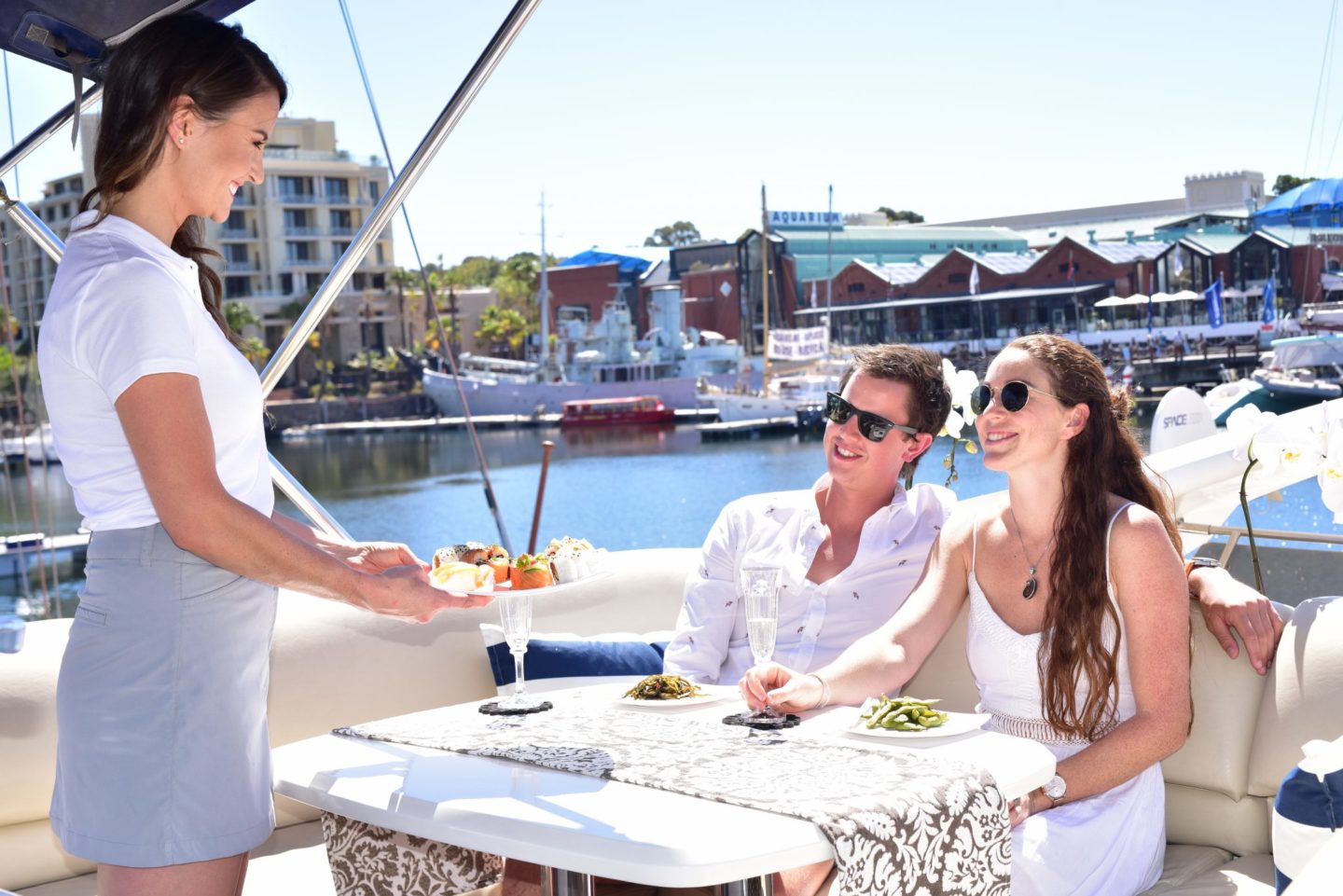
Steward / Stewardess
A superyacht stewardess is responsible for the guest service, housekeeping and laundry. In some cases, the position is combined with an additional role for those who come from a beauty or healthcare background.
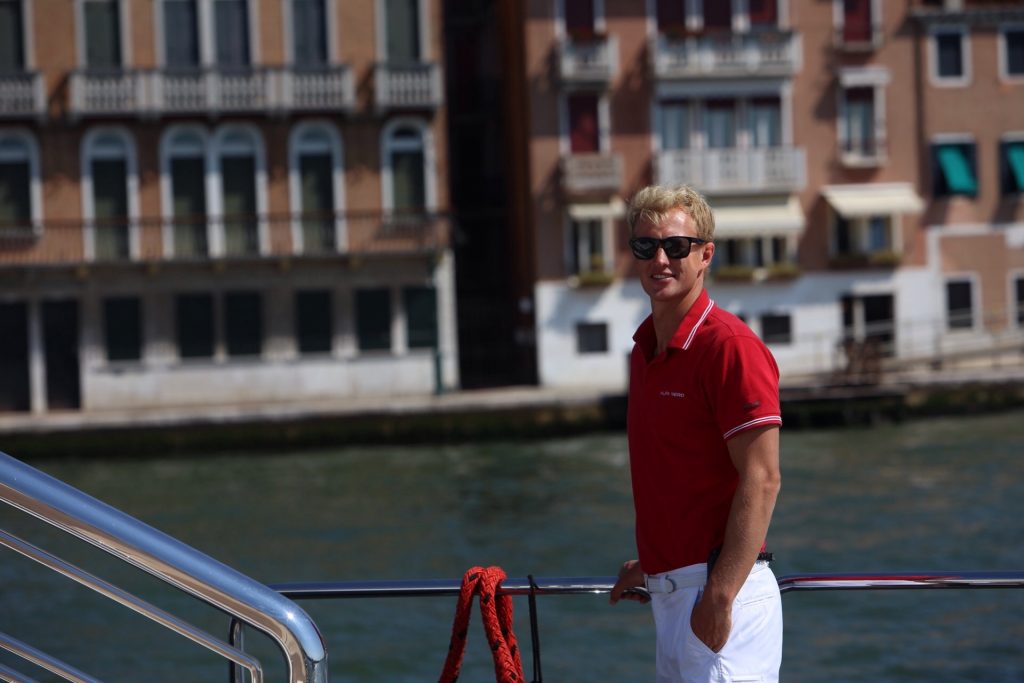
Superyacht Deckhand
A deckhand is responsible for the cleanliness and upkeep of the yacht's exterior. Wash downs, line handling, tender driving, watersports and bridge lookout duties are common tasks for deck crew.

Superyacht Chef
Working as a superyacht chef comes with some unique challenges. Although the skills are certainly transferable, there is specific training and certification required. It can be a tough but extremely rewarding job.

Superyacht Engineer
Working on a yacht or superyacht as an engineer can be a rewarding career path. Although a background in engineering or mechanics is an advantage, it is not a prerequisite. The duties associated with the role are diverse, exciting and require a great deal of hard work.
3. Complete All Mandatory Superyacht Training Courses
Having the correct training and certifications is essential to your employability in the superyacht industry. In order to become a crew member, you will need to have completed the following training:
- STCW 2010 Basic training
- Proficiency in Designated Security Awareness or Proficiency in Designated Security Duties
- Department-specific training for your desired role. (I.e. stewardess, deckhand, engineer, chef, and officer courses)
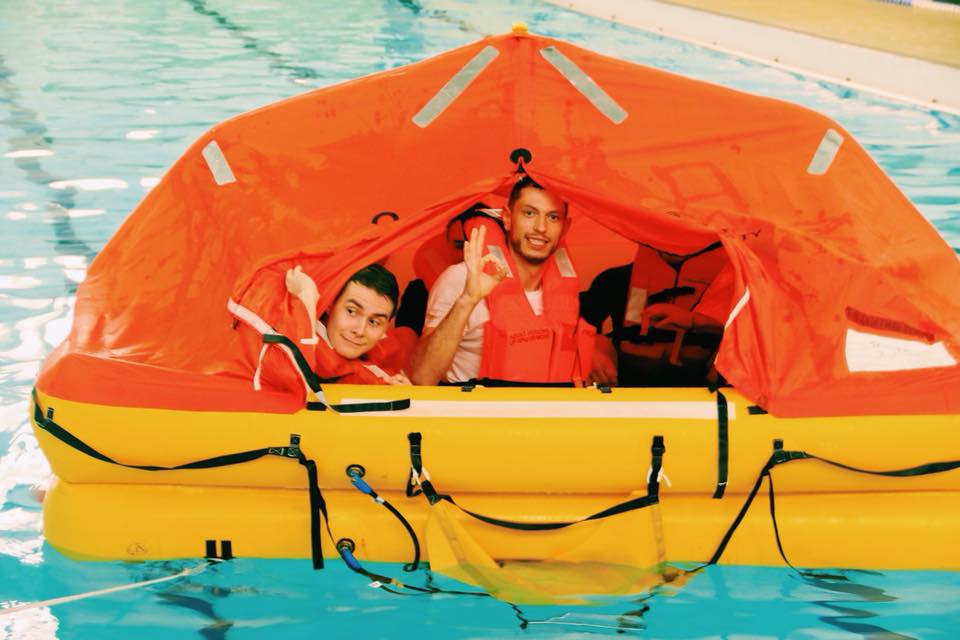
4. Obtain an ENG1 or ENG1 Equivalent Seafarer Medical Certificate

ENG1 Medical Certificate (or ENG1 Equivalent)
Superyacht work can be physically demanding. Ensuring that crew are physically well and able to work at sea is a crucial aspect of the crew and guest safety.
In order to work on a superyacht, you will have to hold an ENG1 Medical Certificate. Because the certification is set by the Maritime and Coastguard Agency (MCA), the examination must be performed by an MCA-approved doctor. The examination is done in order to identify any medical conditions that may prevent you from safely performing your work duties at sea.
5. Choose a Location to Join a Superyacht
When looking for your first job it is essential to be in the right place at the right time. There are a lot of factors to take into consideration when selecting your location, however the two most popular areas for working on a superyacht are:
6. Obtain the Correct Visas & Documentation for the Relevant Superyacht Hub
It is essential to obtain the correct visa for the country you plan to work in. It is important to understand the types of visas that exist as well as the local laws with regard to job seeking.
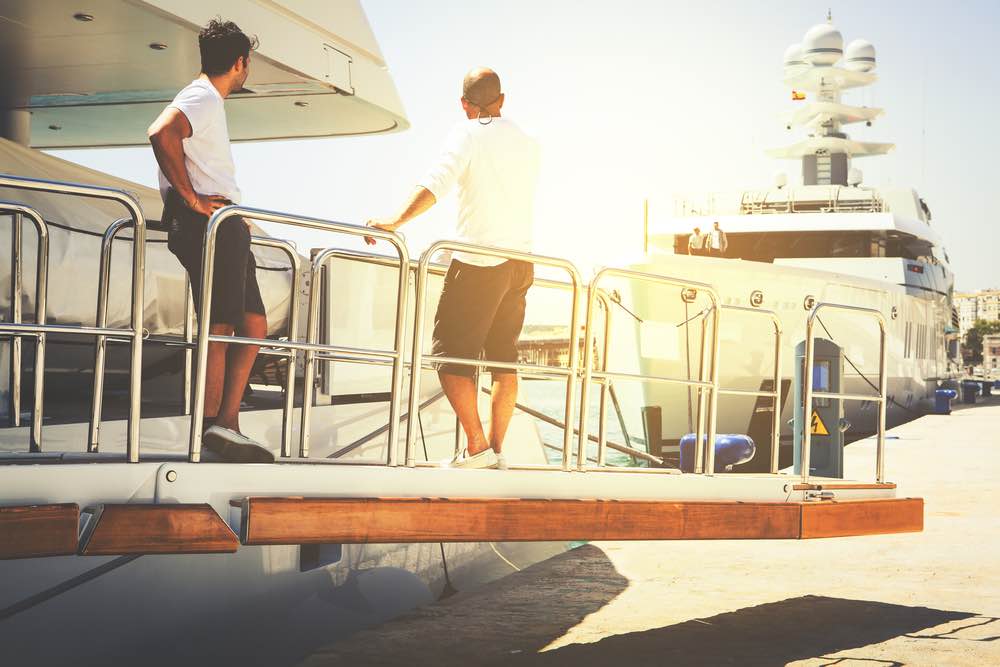
7. Create a Superyacht Crew CV
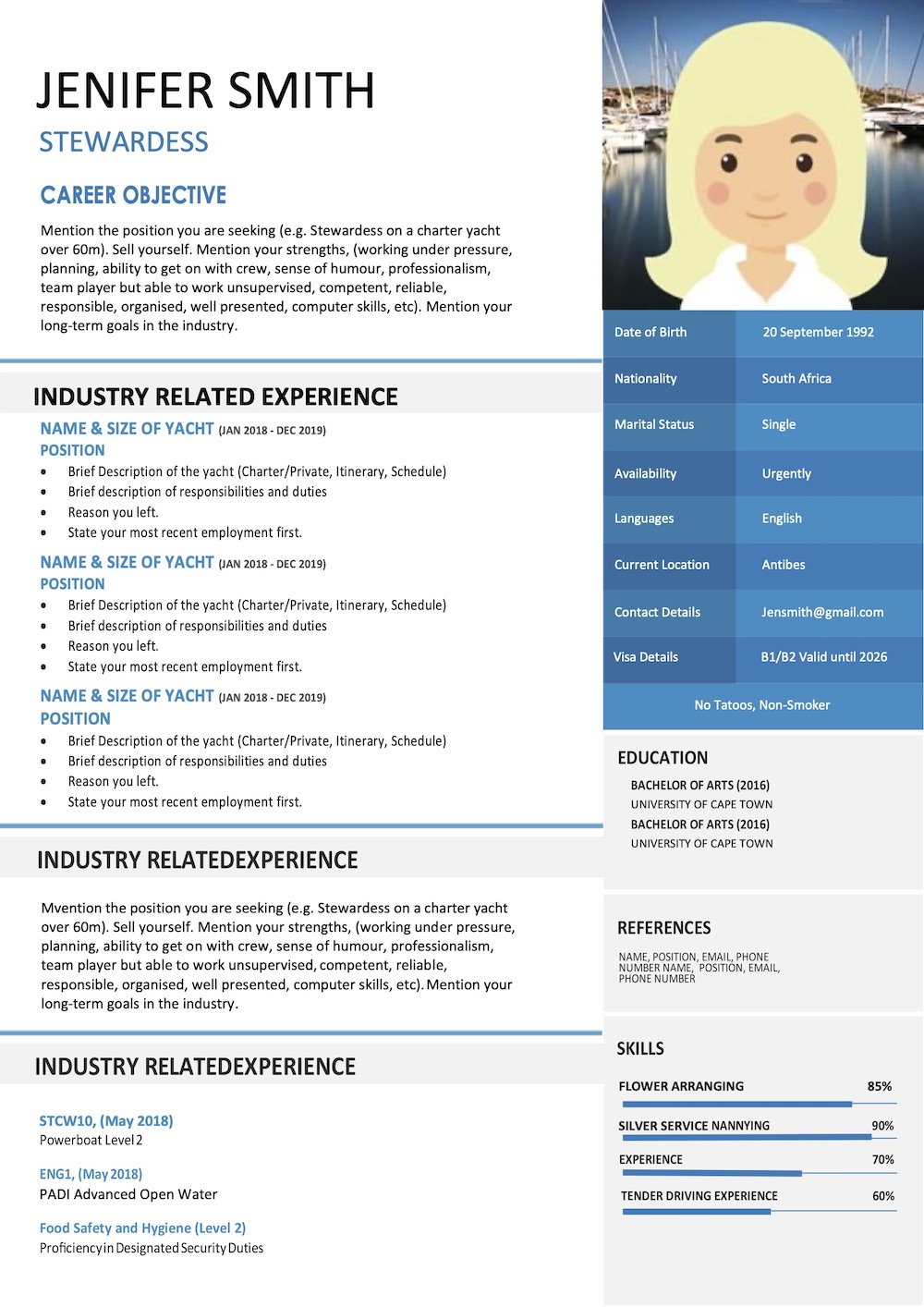
A professional and well-structured superyacht CV will help differentiate you from other job seekers looking to enter the industry.
Superyacht crew resumes have a different structure to normal CVs. If your CV is not laid out appropriately, your chances of being considered for a position are slim.
Examples and more information on how to create a great CV can be found on the links below.
8. Find Superyacht Job Vacancies
Finding the right job in the superyacht industry takes time and commitment. Using credible resources is key:
- The My Crew Kit Superyacht Job Board - Crew Agencies - Social Media Pages - Dockwalking - Networking
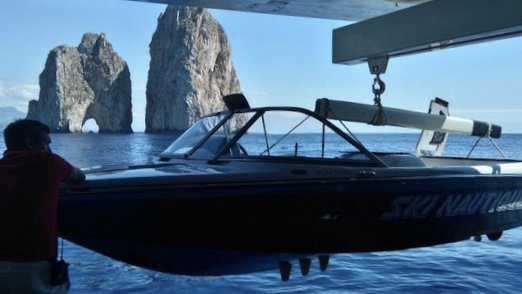
My Crew Kit Job Board:
My Crew Kit has the fastest-growing job board in the industry. Find the latest jobs posted by crew agents, captains and crew around the world!
View the latest vacancies
Crew Agencies
Crew Agencies play an intermediary role between yachts and crew. There are numerous agencies scattered around the main yachting hubs. Registering is a simple process and can be done online, many agencies will then request a short interview in person.
Find out more about Crew Agencies

Social Media Pages:
Online job boards and social media pages are extremely useful ways to apply for jobs as well as to find day work. It is important to only apply to jobs if you meet the criteria (have the correct experience and qualifications).
Be wary of which jobs you apply to. We recommend you only apply for jobs from closed social media groups with active moderators. Fake job posts do occur at times. Make sure you do not meet with or send personal information to suspicious accounts.
Find Appropriate Social Media Pages
Dockwalking:
Dockwalking is the process whereby you walk the docks with the aim of getting day work or even landing a permanent job. It is a gruelling task as there are often long distances between docks and it requires hours on foot. It also involves a lot of rejection as many boats are fully crewed and not looking for employees.
Find out more about dock walking.
Networking:
Your introduction to the world of yachting. The industry is growing exponentially; every year more boats are built, and more crew join the industry. It remains however, a close-knit community that feels a lot smaller than it is. ‘Everybody knows everybody’ and finding a job through a friend or a friend of a friend is often the best way to go. Crew like to work with people they get along with. They are therefore much more likely to hire someone from their extended network of friends than to look elsewhere (provided experience and qualification requirements are met).
A Few Suggestions:
- Network at every opportunity you get.
- Socialise with people you meet at training courses.
- Attend dock parties and BBQs.
- Socialise with the people in your crew house and visit other crew houses.
- Join yacht groups on social media.
- Hang out in the ‘yachty’ bars and restaurants.
- The more people you know in the industry the better off you will be.
Username or Email Address *
Remember me Lost your password?
Username or Email
Get New Password
$150 Off Captain's License Courses! Use code: CAP150
- Get Started
- OUPV/Six-Pack Captain’s License
- 25/50 or 100-Ton Master Captain’s License
- License Endorsements
- All USCG Captain's License Courses
- Mariners Crew
- Mariners Skipper
- Mariners Master Skipper of Power
- Mariners Master Skipper of Sail
- Mariners Master Skipper of Power & Sail
- All Recreational Courses
- FCC MROP – Marine Radio Operator Permit
- FCC Exam Package Deals
- FCC Individual Exams
- FCC Practice Test Books
- Captain's License Guides
- FCC License Guides
- Why Our Students Succeed
- MLS Learning Tools
- Online Testing
- American Hero Fund (ID.me)
- Licensing Guides
- How To Videos
- Help Center
- 24/7 Live Technical Support
- Mariners Life
- Mariners Gear
Add description, images, menus and links to your mega menu
A column with no settings can be used as a spacer
Link to your collections, sales and even external links
Add up to five columns
Captain’s License Requirements: Your Ultimate Checklist
April 16, 2024
Deciding to get your captain’s license is a big deal, but it can bring with it a storm of questions and anxieties.
Can you pass the physical? Are you up for re-entering the world of studying and exams? Will the hours you’ve already put in count toward your captain’s license requirements?
Despite those fears, you want to move forward, maybe to use your license commercially, or maybe for the assurance, safety, and/or achievement of becoming an officially licensed captain.
Whatever your motivation , knowledge is power; we find that fears fade in the face of concrete information.
Below, learn what you need to know regarding captain’s license requirements , how to prepare , and the common myths and misconceptions that hold boaters back.
Basic Captain’s License Requirements
The most common captain’s license is the OUPV or Six-Pack , which allows you to commercially captain a vessel with up to six passengers. To earn this license, you must:
- Be 18 or older
- Have legal status to work in the U.S.
- Pass a drug test and a physical
- Acquire a Transportation Worker Identification Credential (TWIC) card
- Get certification in adult CPR and basic first aid
- Pass a Coast Guard-approved course like Mariners or test directly with the USCG
Finally, you must have a minimum of 360 days experience on the water. Make sure you count your days correctly. Four hours on the water counts as a day, but even if you spend 12 hours out on your boat, you can only count one day in a 24-hour period.
Documentation of your days doesn’t need to be in a written record or logbook. Typically, it boils down to a best guess, and you can sign off your own time if you own your boat. If you’re not logging days on your own boat, the owner of the vessel you use needs to confirm your time.
Either way, make sure the vessel you use is properly registered — the Coast Guard won’t count time on a boat taken out on the water illegally.
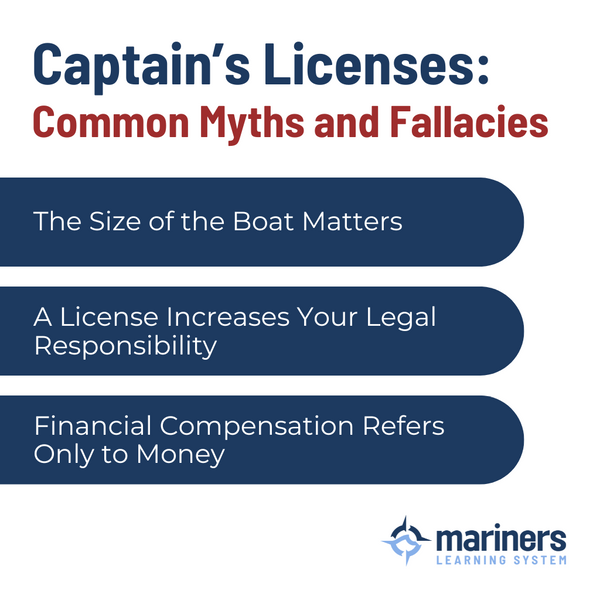
Common Myths and Fallacies Around Getting Your Captain’s License
Persistent myths muddy the waters when it comes to captain’s license requirements and consequences. Here, we clear up the most common fallacies to better prepare you for the journey.
The Size of the Boat Matters
People looking to get their Six-Pack captain’s license often worry that their experience won’t count if it’s on the wrong size or class of boat. Luckily, the Coast Guard is loose on these requirements — they treat a 10-foot boat and a 100-foot boat exactly the same. Up to 20% of your time can even be done on a jet ski.
However, though the size of the boat doesn’t matter, the Coast Guard does want your experience to match the type of license you’re getting. The Six-Pack license allows you to captain sailboats and powerboats.
Exception: For a Master Captain’s License , the Coast Guard issues a 25, 50, or 100-ton license depending on the size of the vessels you have experience with.
A License Increases Your Legal Responsibility
Being a captain is a big responsibility, but not an overly burdensome one. Many people believe that having a captain’s license increases your legal responsibility aboard a boat, even as a passenger, but this isn’t the case. You’re only responsible for boats you’re actively captaining.
We also hear worries regarding incidents between boats, and people wonder whether licensed captains incur higher penalties for incidents with unlicensed boaters.
I like to explain it this way: When it comes to the Navigation Rules of the Road, there’s no asterisk that says, “especially if you’re a captain.” The laws apply the same to licensed and unlicensed boaters.
Financial Compensation Refers Only to Money
You need a captain’s license to use your boat commercially, but “financial compensation” isn’t just money changing hands.
If your friends chip in for gas for a day on the water, that’s fine. But if you’re taking a family out on your boat in exchange for a weekend at their country club, the Coast Guard considers that as payment. In that case, you’re required to have a captain’s license.
Potential Captain’s License Disqualifiers
While there’s a long list of factors that might disqualify you from meeting captain’s license requirements, even the most common don’t often pose a huge obstacle. A little knowledge and planning can go a long way toward avoiding issues.
Drug Use and Omissions
The Coast Guard isn’t out to penalize people for one mistake in their past; they’re primarily looking for problematic trends and patterns. One DUI from 20 years ago likely won’t disqualify you (if you have a clean slate since), but three DUIs in 10 years demonstrate a concerning pattern to the Coast Guard.
Important: Remember to disclose all violations , even those that have been expunged from your record. They will come up in your background check. Omitting them from your application will create a bigger issue than a mistake you made and corrected in the past.
Health Challenges
The two most common health problems that might prevent you from passing the physical are sleep apnea and recent heart issues, including getting a stent.
In both cases, the Coast Guard will communicate with your doctor to ensure your conditions are monitored and controlled. They’re looking for a clean bill of health for a minimum of 18 months, and they may also require extra tests such as a sleep study or stress test.
As a licensed captain, you’re literally in charge of people’s lives. The goal of the Coast Guard is to make sure an underlying health condition won’t compromise your passengers’ safety.
Certain Medications
If you take a prescription opioid for chronic pain, you’ll likely run into difficulty getting your captain’s license. Other medications, such as Adderall for ADHD, may pose a problem as well, but the Coast Guard can work with your doctor to make that determination.
Again, safety is the Coast Guard’s number one concern. If you and your doctor show that you can be responsible for people’s lives, then your chance of disqualification is reduced.
One exception is the use of medical marijuana. Though legal in many states, marijuana use still violates federal law, and captain’s licenses are issued at the federal level.
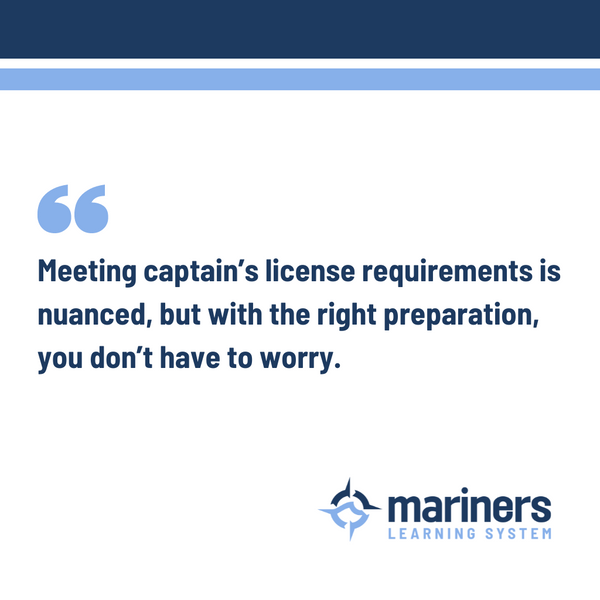
Captain’s License Requirements: Get the Ultimate Guide
Meeting captain’s license requirements is nuanced, but with the right preparation, you don’t have to worry.
Learn more about the requirements and process for earning your captain’s license in our guide: The Definitive Guide to Becoming a Licensed Boat Captain .
Leave a comment
Comments will be approved before showing up.
Ready to Get Started?
Shop Courses or Talk to a Licensing Specialist
- Online Courses
- Useful Info
Superyacht Deckhand Course
Home Courses Superyacht Deckhand Course
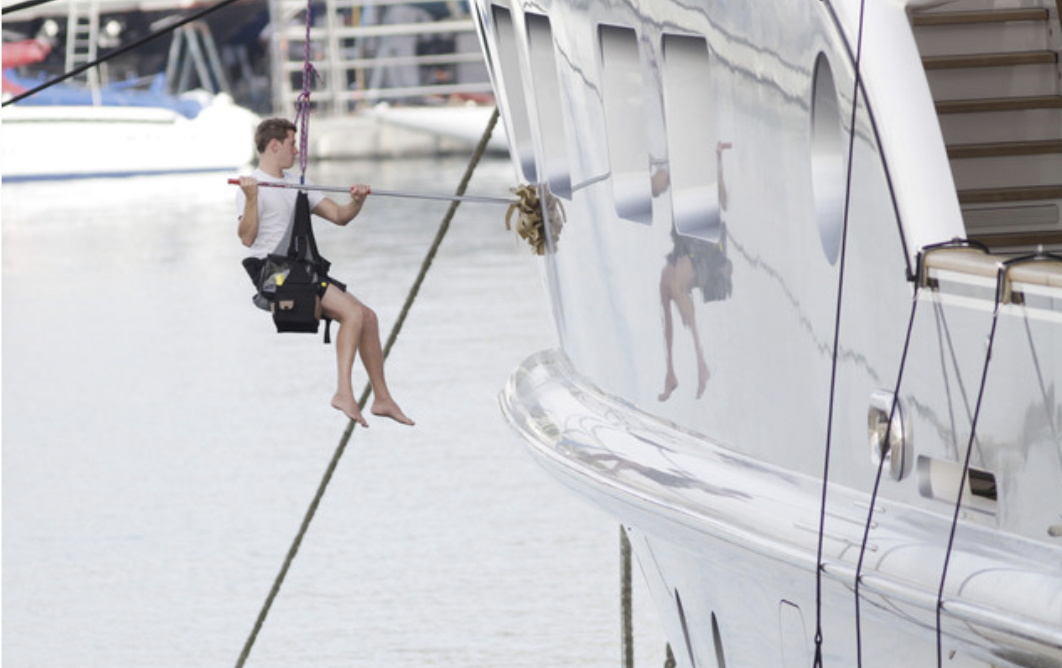
COURSE DATES
The course is 9 days in total and is reflected in the following order:
Superyacht Deckhand Course: Wed-Sat & Mon-Fri (9 days)
• Aug : 1 4-17 & 19-23 2024
• Sep : 11-14 & 16-20 2024
• Oct 09-12 & 14-18 2024
• Nov : 06-09 & 11-15 2024
• Dec : 04-07 & 09-13 2024
*Course run over Sunday due to public holiday
• Jan : 15-18 & 20-24 202 5
• Feb : 05 -08 & 10-14 2025
• Feb : 26-01 & 03-07 2025
• Mar : 19-22 & 24-28 2025
• Apr : 09-17* 2025
• May : 07-10 & 12-16 2025
• J un : 04-07 & 09-13 2025
*Course run on Sunday due to Public Holiday
MCA Internationally recognised training to become a superyacht deckhand. This IYT Deckhand Training Course is a qualification, unlike the recreational sailing “Competent Crew” course which is being offered through other superyacht training providers.
The IYT Deckhand Training Course certification is the only internationally recognised qualification for deckhands. Your graduation certificate will be accredited by International Yacht Training (IYT) Worldwide, who has recognition with 25 governments across the globe.
The Superyacht Deckhand course will ensure students become job ready, receive resume and career advice, participate in interview role plays and undertake further crew management training. A deckhand carries out his or her duties under the direction and authority of the captain via the first officer and/or bosun. A deckhand’s duties include keeping the yacht’s exterior and deck equipment clean and exquisitely maintained, assisting in watch keeping and navigational support, guest services and docking procedures. Students will receive extensive training in these areas and the course provides the theoretical and practical skills required to be a successful crew member onboard a superyacht. Both power and sail superyacht skills are covered in the course, which will increase your opportunities for placement once you graduate.
Certification You Will Achieve
All successful graduates receive the following certification:
IYT – International
- MCA Recognised IYT Superyacht Deck Crew including Small Powerboat/RIB Master & introduction to VHF radio operations. This IYT certificate is equivalent to the MCA’s ‘Yacht Rating Course’ and enables candidates to apply for an MCA ‘Yacht Rating Certificate’ with proof of STCW and 2 months sea service on vessels over 15 metres in load line length. For more information on this visit IYT’s website and their Superyacht Deck Crew Course page or contact us for more information. This is a certificate you can work towards achieving once employed in the industry. ***This IYT certificate is equivalent to the MCA’s ‘Yacht Rating Course’ and enables candidates to apply for an MCA ‘Yacht Rating Certificate’ with proof of STCW and 2 months sea service on vessels over 15 metres in load line length. For more information on this visit IYT’s website and their Superyacht Deck Crew Course page or contact us for more information. This is a certificate you can work towards achieving once employed in the industry.

AMSA – National
Our Internationally Recognised Certifications Are Your Entry To Getting A Job Aboard A Superyacht
The MCA recognised IYT Deckhand Training Course is the only internationally recognised qualification for superyacht deckhand crews. Your graduation certificate will be accredited by International Yacht Training (IYT) Worldwide, who has recognition with 25 governments across the globe. The RIB tender certificate is recognised by the Maritime Coastguard Agency (MCA).
The Superyacht Crew Academy has established over the years a global network with leading recruitment agencies overseas and within Australia. All of these Superyacht Crew recruitment agencies ‘acknowledge’ and welcome the IYT Professional Superyacht Interior Crew certification.
Prerequisites
Candidates must already hold the mandatory STCW95+10 certification. This is the entry-level course for superyacht crew and anyone with a reasonable command of the English language, who is over 18 years old, in good health, and without colour blindness can sign up for the course.
What Other Qualifications Will I Need?
NSW General Powerboat licence and NSW Personal Watercraft licence examinations can be organised to run as part of your Deckhand training. Please contact us to organise these certifications.
Our Superyacht Interior Crew & Deckhand Package course is the ultimate package and will provide you with all the theoretical and practical skills necessary to excel in a dual role. This combined package course enhances your employment opportunities and gives you the confidence to be employed in any entry level role onboard a Superyacht.
Other useful qualifications, like SCUBA diving, videography, photography, carpentry, strong swimming skills, watersport skills, will improve your Superyacht Crew Job prospects and make you a more valuable crew member. Outstanding physical endurance, athletic skills, and a pleasant disposition are important for a career aboard Superyachts.
Course Description:
Course Content: The course is a very hands on practical course where you will complete different tasks and duties, Students are required to participate in all practical tasks including taking command of the vessel.
Accommodation: Accommodation will be required to be arranged by the student. Check out our Student Accommodation section with recommended listings of local Airbnb or youth hostel accommodation during your course.
Sun Sense & Equipment: Please bring a hat, sunglasses, sun cream (also available onboard), change of clothes (minimal wardrobe needed), wet weather jacket, any special medicine you may need to take (we have a first aid kit aboard). Be sure to pack this in a flexible soft bag as there is no room aboard for hard luggage.
Training Location
The course is run from our Office in Warriewood Superyacht Crew Academy Training office at 25a/5 Ponderosa Parade , and our practical training facility in Newport 2 queens parade. The facilities are a 45min drive North of Sydney’s CBD. We offer a free shuttle between both facilities when needed.
Program for the Superyacht Deckhand Course
- Nautical Knowledge
- Lifting & Rigging
- Shipboard Safety
- Emergency Drills
- Vessel Manoeuvring
- Collision regulations
- Watchkeeping
- Introduction to weather
- Code of Safe Working Practices
- Compasses and chartwork
- Taking Bearings
- Fix vessels position
- Navigation Passage planning
- Night Watchkeeping
- Passage from fixed point back to Pittwater
- Night pilotage using IALA and blind navigation techniques
Superyacht Maintenance
- Brightwork/ Varnishing
- Preparation of Surfaces
- Application Techniques
- Product Knowledge
- Teak Maintenance
- Exterior Wash Down Techniques
- Servicing Deck Gear
- Maintenance Schedule
- Stainless Polishing
- Cleaning Windows
- Engine checks and maintenance
Vessel Handling
- Coming alongside wharves
- Mooring techniques
- Anchoring procedures
- Line handling and line throwing techniques
- Sails and sail handling
- Emergency Scenarios
- General seamanship
- Line throwing techniques
- Ropes, knots and splicing
- Fendering and tying up correctly
- Pre-launch/pre-departure checks
- Refuelling procedures
- RIB handling techniques under power
- Coming Alongside vessels and wharves
- MOB procedures
- Engine checks
- VHF radio practical
- Dinghy launching & recovery
- Bridge equipment
- Conducting safety briefing
- Lights/sound signals
- Vessel handling theory
- Anchors & anchoring
- Nautical terminology
- Emergency procedures
- VHF/HF radio operation
- Phonetic alphabet
The Superyacht Deckhand Course can be taken as a stand-alone course. Contact us for more information and pricing. Recognition of Prior Learning or Credit Transfer will apply to achieve the AMSA – National certification.
Enquire about this course.

Superyacht Crew Academy Provides training and certification for people who wish to work on Superyachts anywhere in the world and within the Australian Maritime Industry. Legal Name: Club Sail Pty. Ltd. Trading as: Superyacht Crew Academy Registered Training Organisation no. 91462
Unit 25a/5 Ponderosa Parade, Warriewood, NSW 2102, Australia.
+61 2 9979 9669
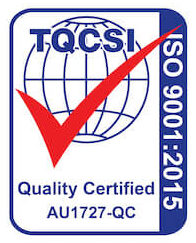)

IMAGES
VIDEO
COMMENTS
The skills of a successful yacht Captain include: Excellent leadership, management and diplomacy skills. Excellent yacht handling and navigation. Ability to stay calm in difficult situations. Good grasp of finance and legislation. Excellent communication and interpersonal skills. Organisation and administration skills.
As a rule, the smaller the yacht, the more hands-on the Captain must be. The larger the yacht, the more administrative duties the Captain will hold. A superyacht Captain specialises in commanding and managing luxury yachts over 24 metres in length. Every crew member falls under the ultimate command of the Captain and will answer to him/her.
Captain. At the top of the Superyacht crew hierarchy, the Captain of a Superyacht works under the vessel's owner or their representatives. ... It's crucial you also have numerous skills and qualifications (financial and IT related). Chief Engineer. The Chief Engineer (as well as the 2nd Engineer working underneath) manages the Superyacht ...
1. Understand the Training Requirements. The foundational step to becoming a deckhand in Australia is to complete the necessary safety training. While the training is broadly similar across different countries, there are specific requirements for those intending to work on commercial vessels within Australia:
The captain will excel in planning and communicating various itineraries to the owners and guests onboard in various cruising areas. All their certifications and licenses are fully up-to-date and they are familiar with the latest requirements/newest technologies. This role usually requires at least five years of experience on yachts.
Building an effective culture and maintaining the highest standards of professionalism and safety whist complying to all regulatory requirements. Managing expectations of owners and other stakeholders such as management companies, is another key part of being a successful captain.". The smaller the yacht, the more hands-on the Captain must be.
The below super yacht Captain salary guideline is based on my personal research using an average of over 10 major yachting platforms: 20m-30m: $4000-$7500 p/m ... This certificate is required in order to Captain a yacht of up to 500 gross tons. Requirements for the course: 12 months as a watch-keeping officer with an OOW Certificate; A valid ...
The captain must hold a license that is commensurate with the gross tonnage of the vessel and approved by the flag state. In addition, the yacht's insurance company needs to be comfortable with the candidate's experience and license and approve the hire. This is understandable when you consider that the underwriter is the biggest financial ...
How do I become a Captain? Qualifications and training. As with the Chief Mate position, in order to secure a position as a superyacht captain you will need to have the relevant Certificate of Competency: in this case, the Master Yachts <500GT/<3000GT Certificate of Competency. Unsurprisingly, this has a highly thorough process to back it up ...
The minimum qualifications for a yacht Captain position include: 3-5 years' experience as a Chief Officer/Mate. 5+ years' experience as a Yacht Captain for larger yachts. License depending on the tonnage of the yacht. Some Owners and insurance companies may require more than is required by maritime law.
Becoming a yacht captain. You now have all the necessary qualifications - there are no more modules. However, you still need to perform an additional 12 months of sea time, and 120 days of sea service. The final step is getting your MCA Master 3000 certification, a process that consists of an oral exam only.
The most popular and widely recognised of the available seafarer medical certificates is the ENG1. The ENG1 Medical is a basic medical certificate and is as essential as your STCW'10. It is a mandatory requirement to prove you are fit to work as a yacht crew member at sea. Only MCA-approved doctors can perform an ENG 1 medical exam.
Salary Range. A junior Captain based on a smaller superyacht (<30 metres) could expect a salary of between £3,500 and £5,500 per month. More experienced Captains, working on medium-sized superyachts (30-50 metres) could expect between £4,500 and £7,000 per month. Very experienced senior Captains on large superyachts (>50 metres) could ...
Superyacht Crew Academy is a registered training organisation and industry leader, offering fully accredited courses to enable your qualifications to take you anywhere you want to go. Both International and Australian recognised competencies will place you into your dream of working on a Superyacht or in the Maritime industry across a range of ...
The mandatory qualifications you need to work on Superyachts are: 1. ENG1 Medical certificate. First things first, you'll need to get your ENG1 Medical certificate - something that is required of all " seafarers.". In a nutshell, this certificate demonstrates that you have the level of health and fitness required to carry out work on ...
It is the organisation responsible for maritime safety in the UK. This role encompasses setting the standard for training and certification for seafarers, including the minimum requirements for certification of superyacht crew. The MCA is an agency of the Department for Transport of the British Government. Even if you have completed similar ...
The specific qualifications can vary depending on your location and the type of yacht you wish to captain. Common requirements include accumulating sea time, completing relevant training courses (such as navigation, safety, and emergency response), and passing licensing exams.
IYT has over 20 years of industry leadership and continues to lead the global maritime industry in certification and nautical standards. Acquire industry recognized superyacht training offered at over 250 IYT schools in over 56 countries worldwide. Find out how you can start learning today.
Important sea service requirements for Master Inland/GL: Must be at least 19 years old. Must be able to document 360 days of experience on a vessel. (See: What Counts as Sea Service) 90 days of sea service must be within the last 3 years of when you apply. The tonnage of the license (25 Ton, 50 Ton, or 100 Ton) that you get, is determined by ...
2. Choose the Yacht Crew Department you Wish to Work in. Before joining the yachting industry, it is essential to decide on your career path. The work environment and duties associated with each superyacht department vary greatly. It is therefore advised that you understand the training, duties and requirements associated with each role.
MCA Master (Captain) Certificate of Competency Requirements for Serving UK Registered Mega Yachts (Superyachts) of over 24m. The Captain (Master) of a Yacht is a licensed mariner whose primary duty is the safe manning and operation of the yacht.The captain is fully responsibility for the crew and the guests and must be familiar with overall safety codes and the safety training of crew.
Basic Captain's License Requirements. The most common captain's license is the OUPV or Six-Pack, which allows you to commercially captain a vessel with up to six passengers. To earn this license, you must: Be 18 or older. Have legal status to work in the U.S. Pass a drug test and a physical. Acquire a Transportation Worker Identification ...
The Superyacht Deckhand course will ensure students become job ready, receive resume and career advice, participate in interview role plays and undertake further crew management training. A deckhand carries out his or her duties under the direction and authority of the captain via the first officer and/or bosun.
The 85m SilverYachts superyacht Bold is on the market and ready to view in Monaco. New to Market SilverYachts 85m superyacht Bold for sale and ready to view in Monaco. Written by Francesca Webster. Tue, 17 Sept 2024 | 11:45. Silver Yachts. Broker visits and inquiries are most welcome, please contact Captain Paul Verry: [email protected] or ...